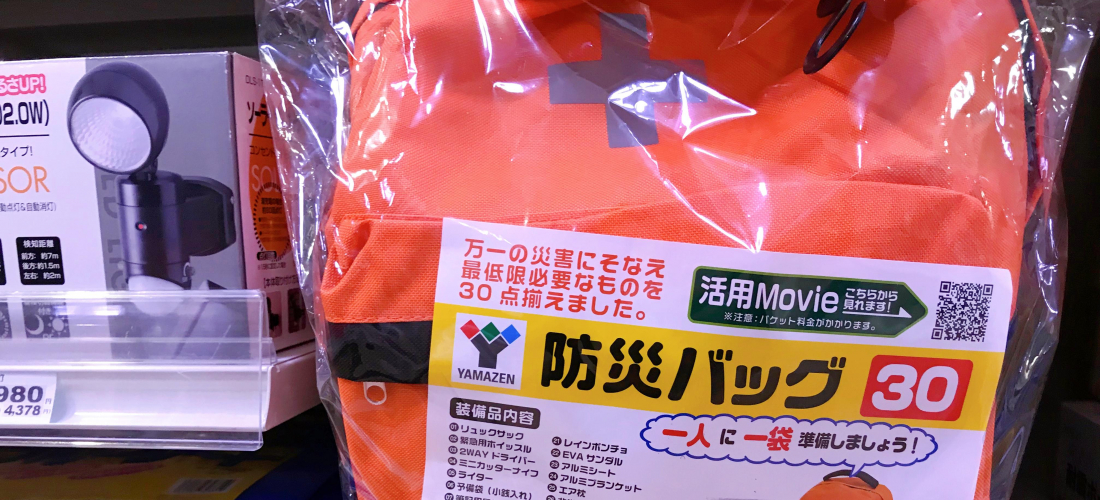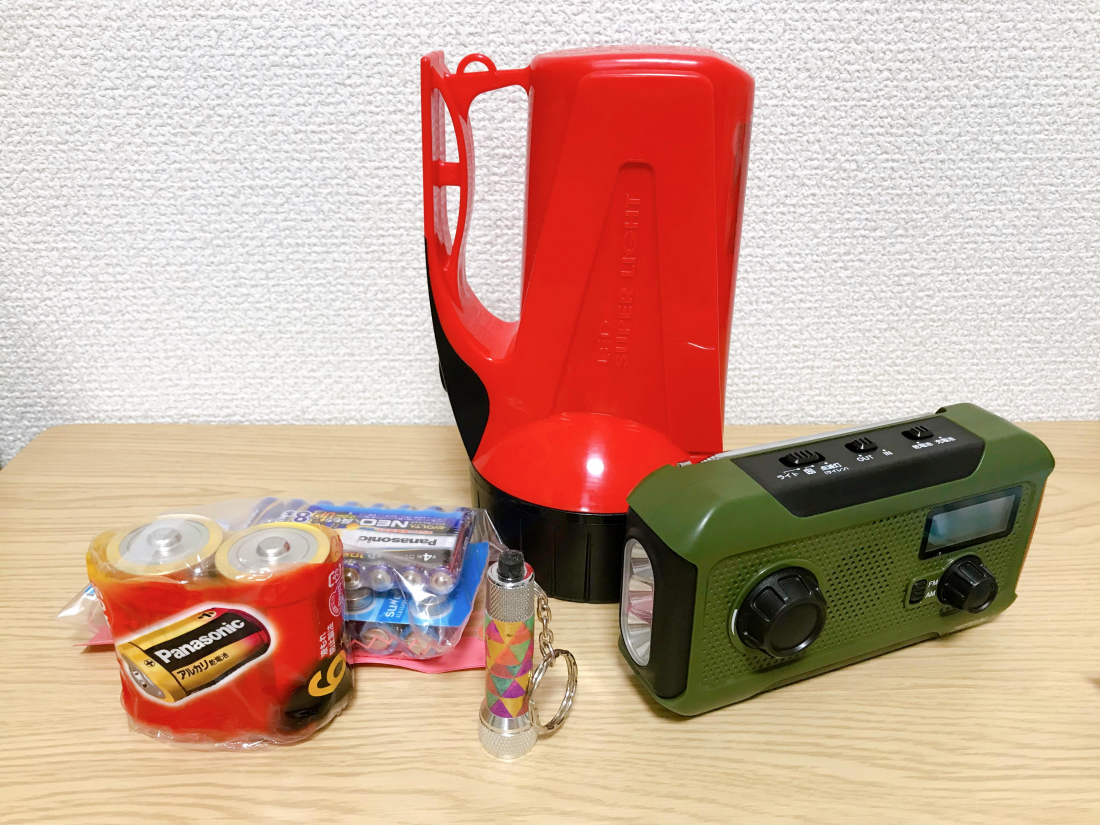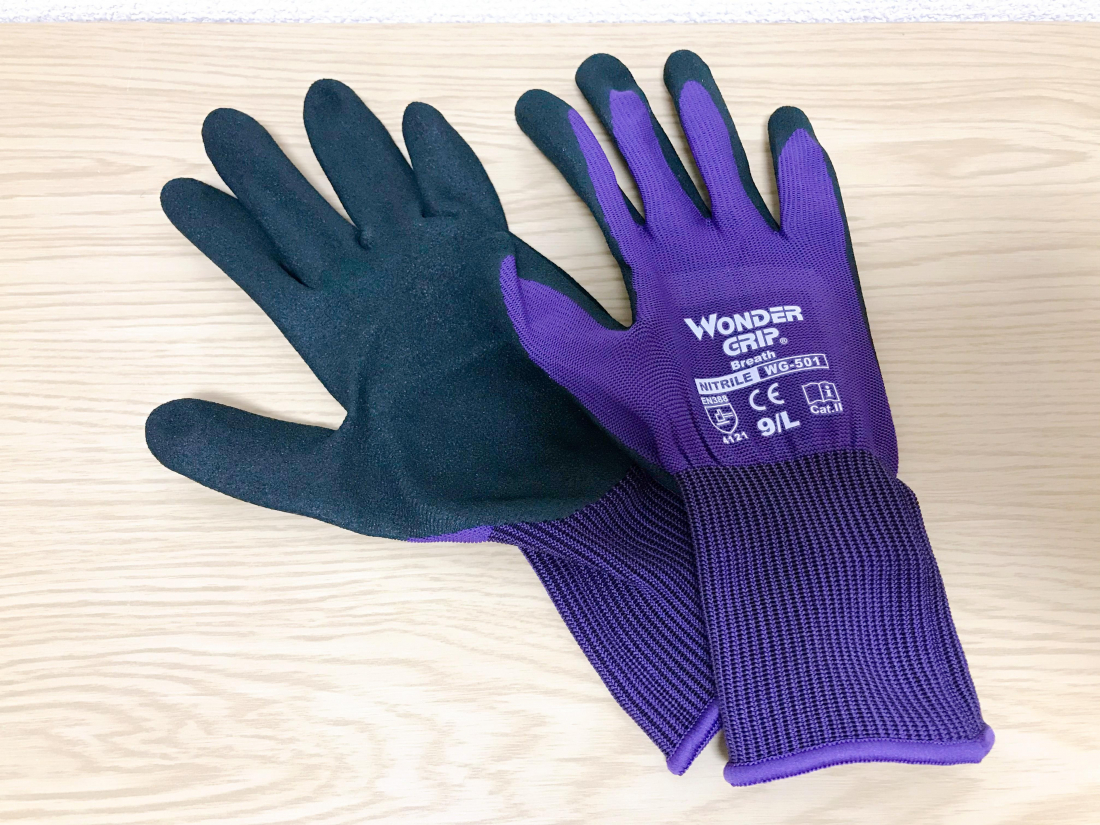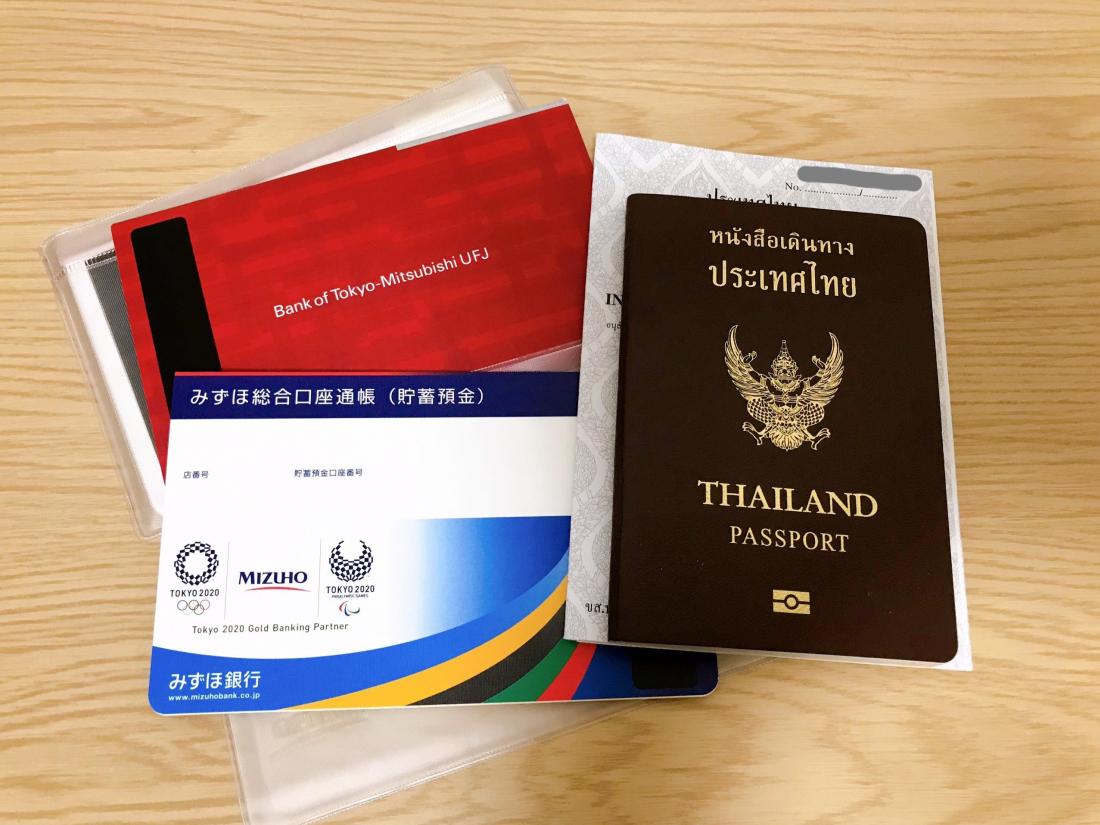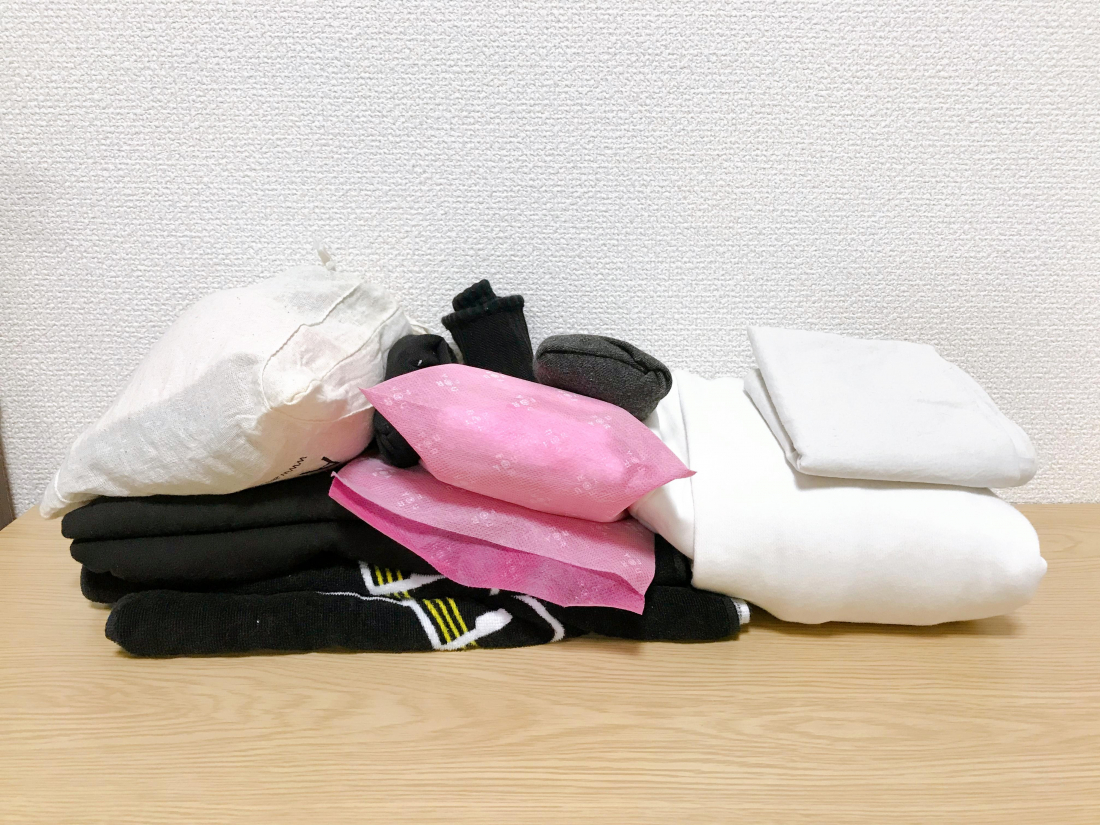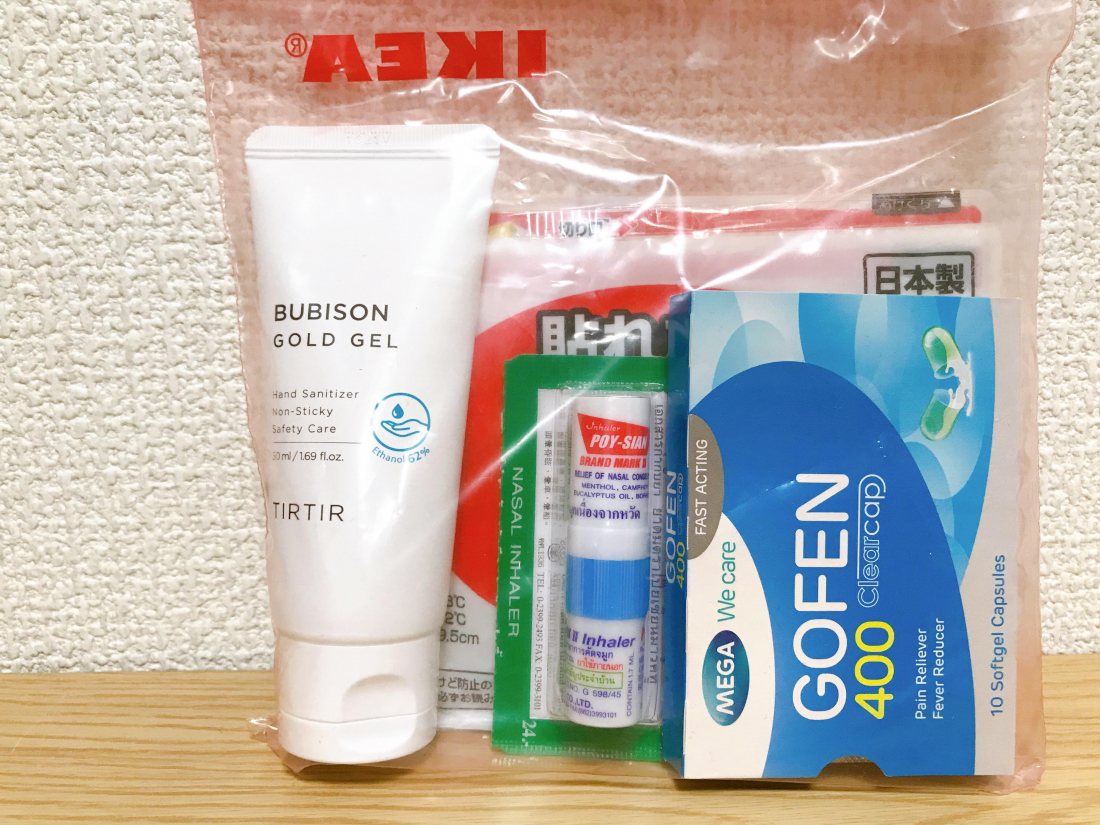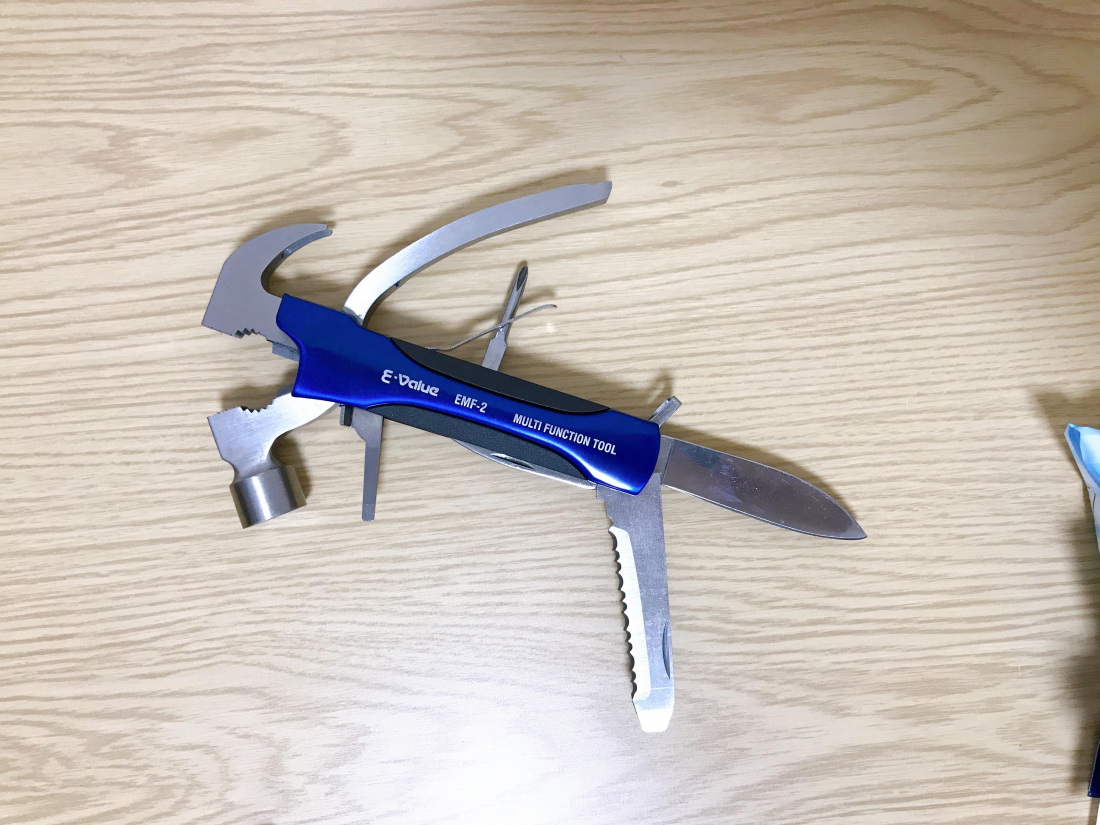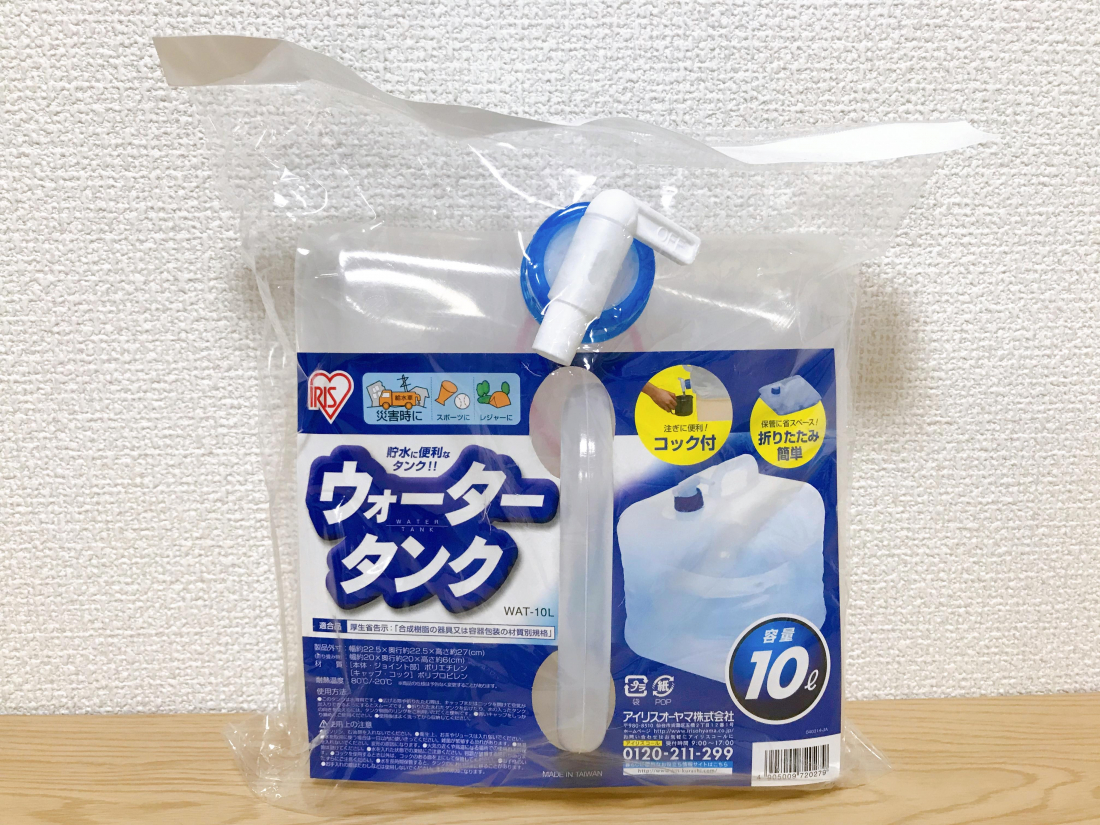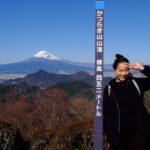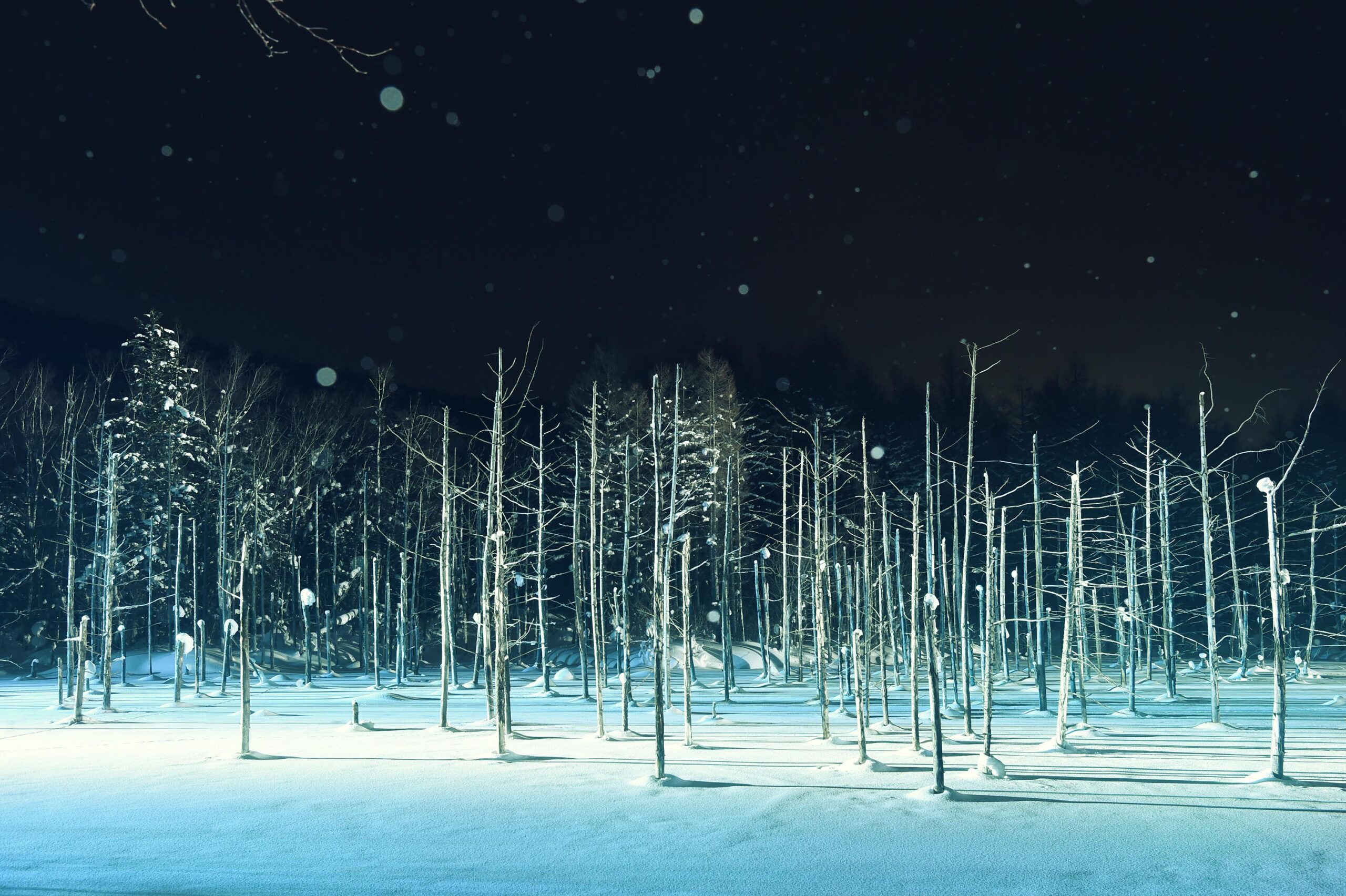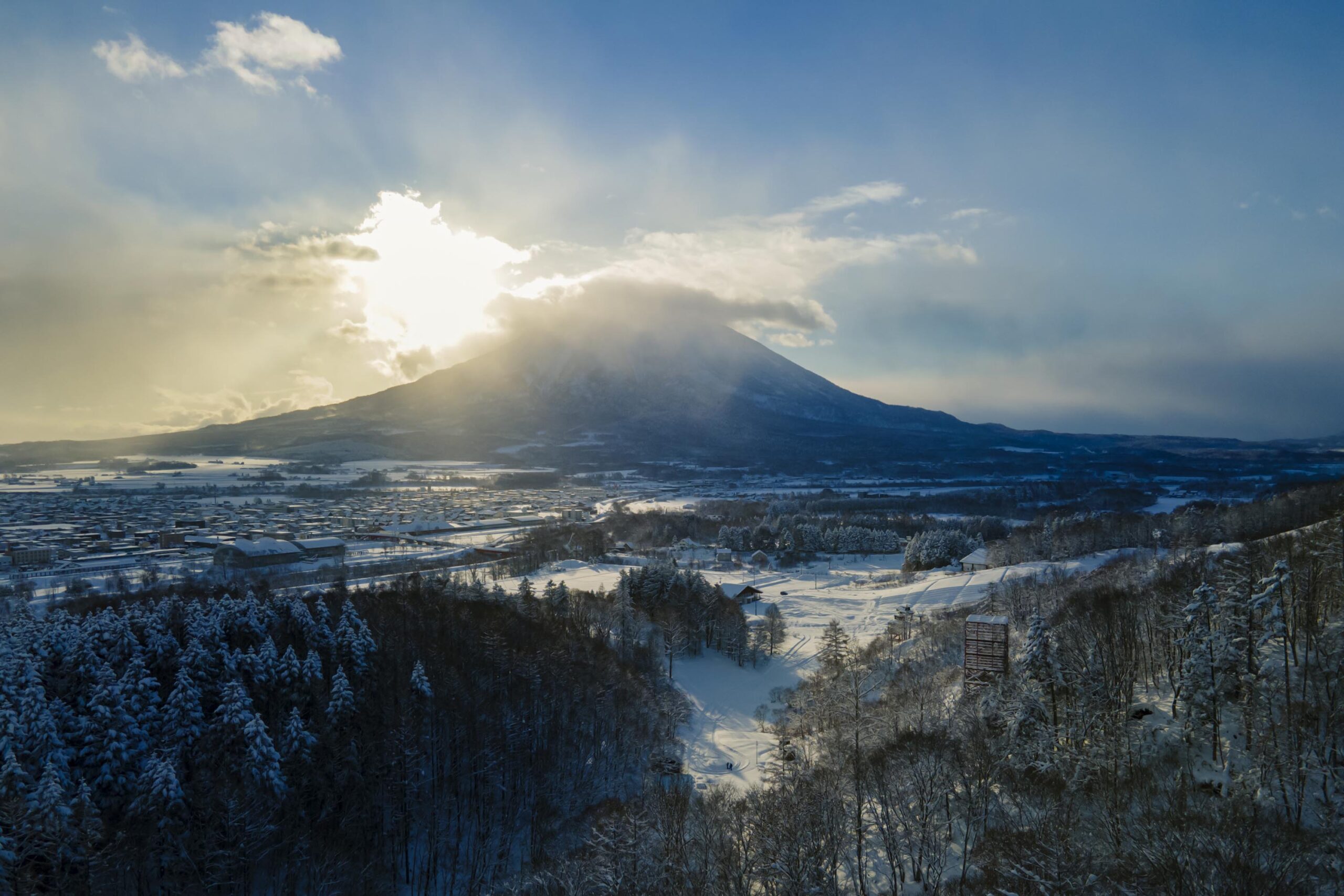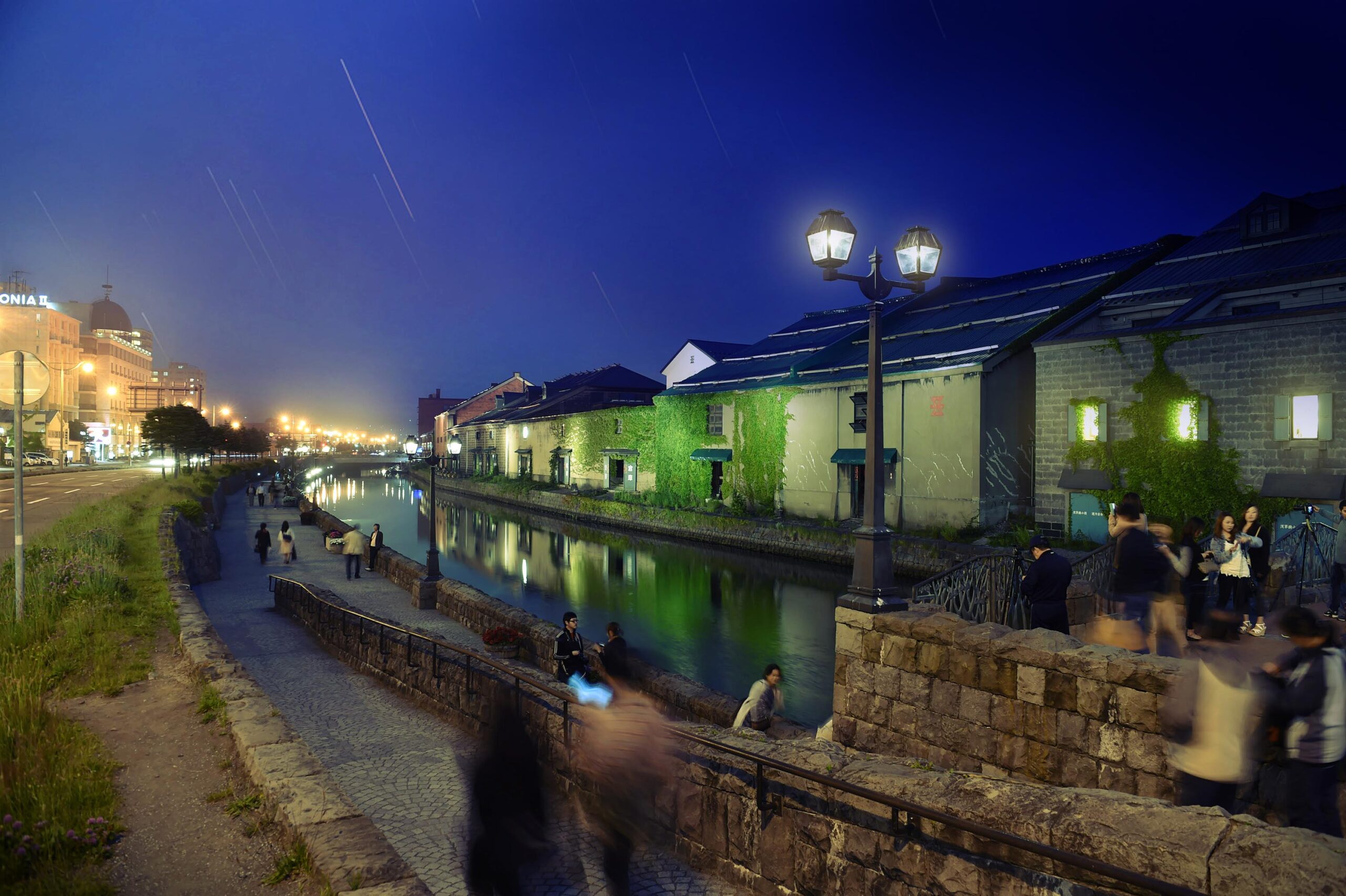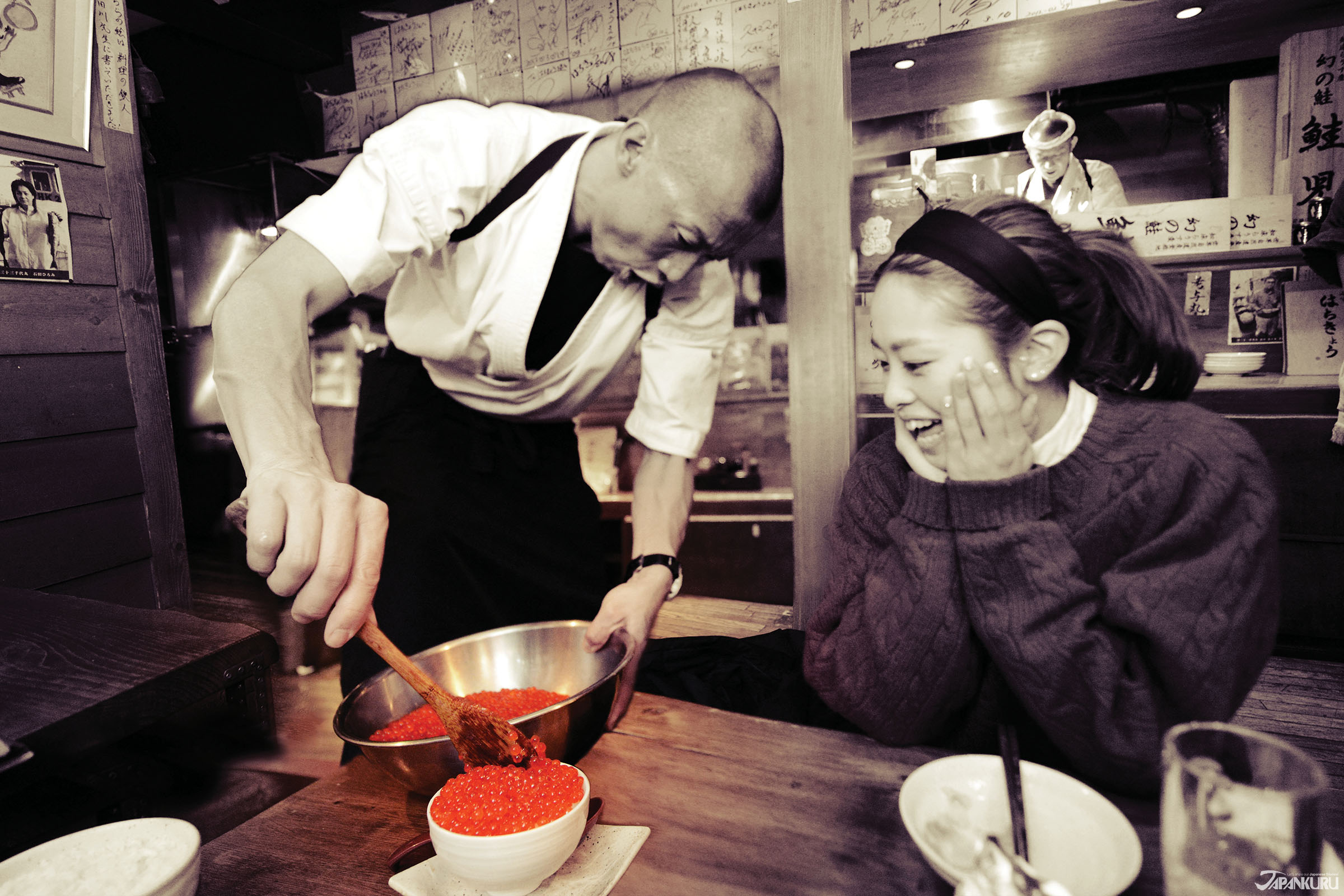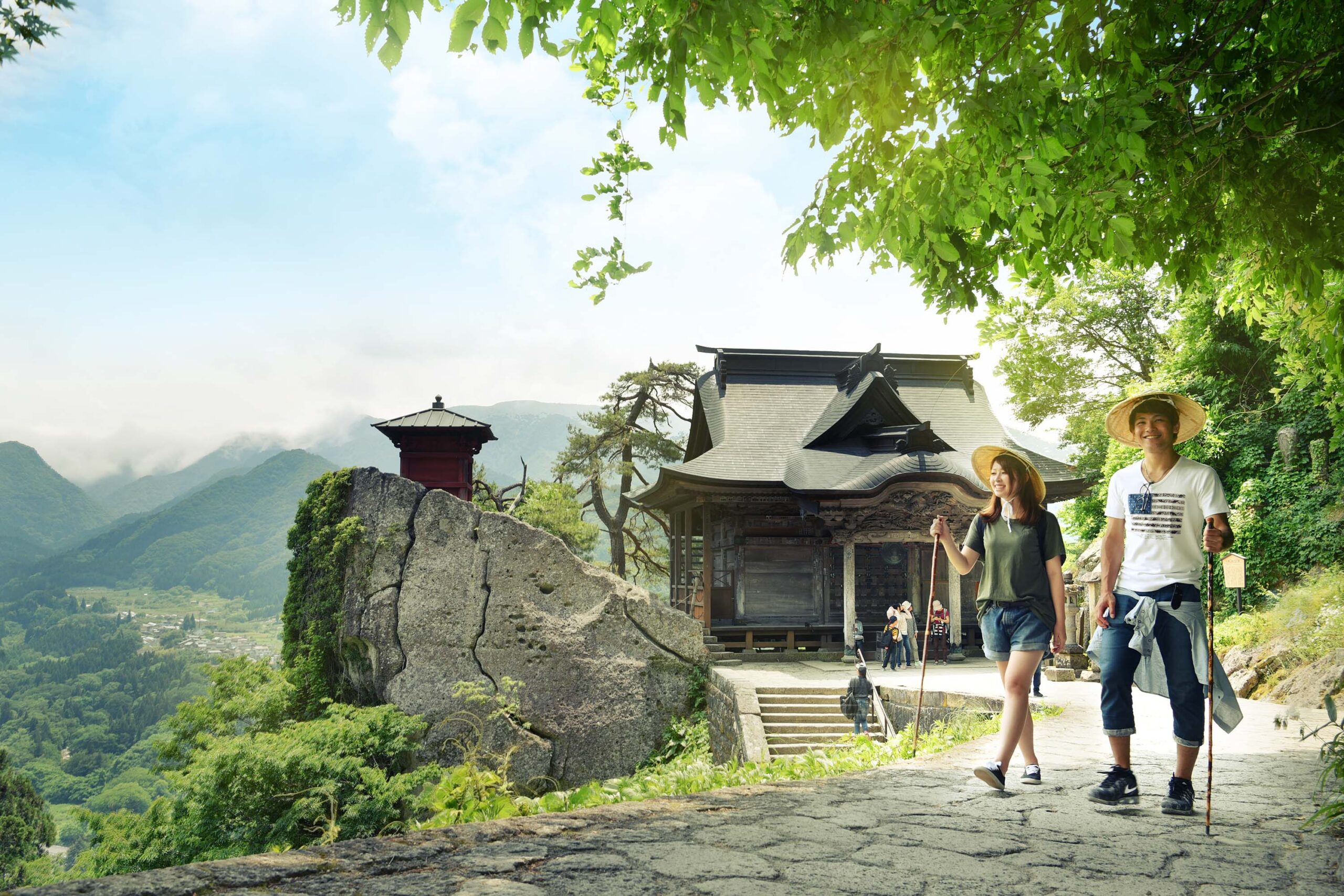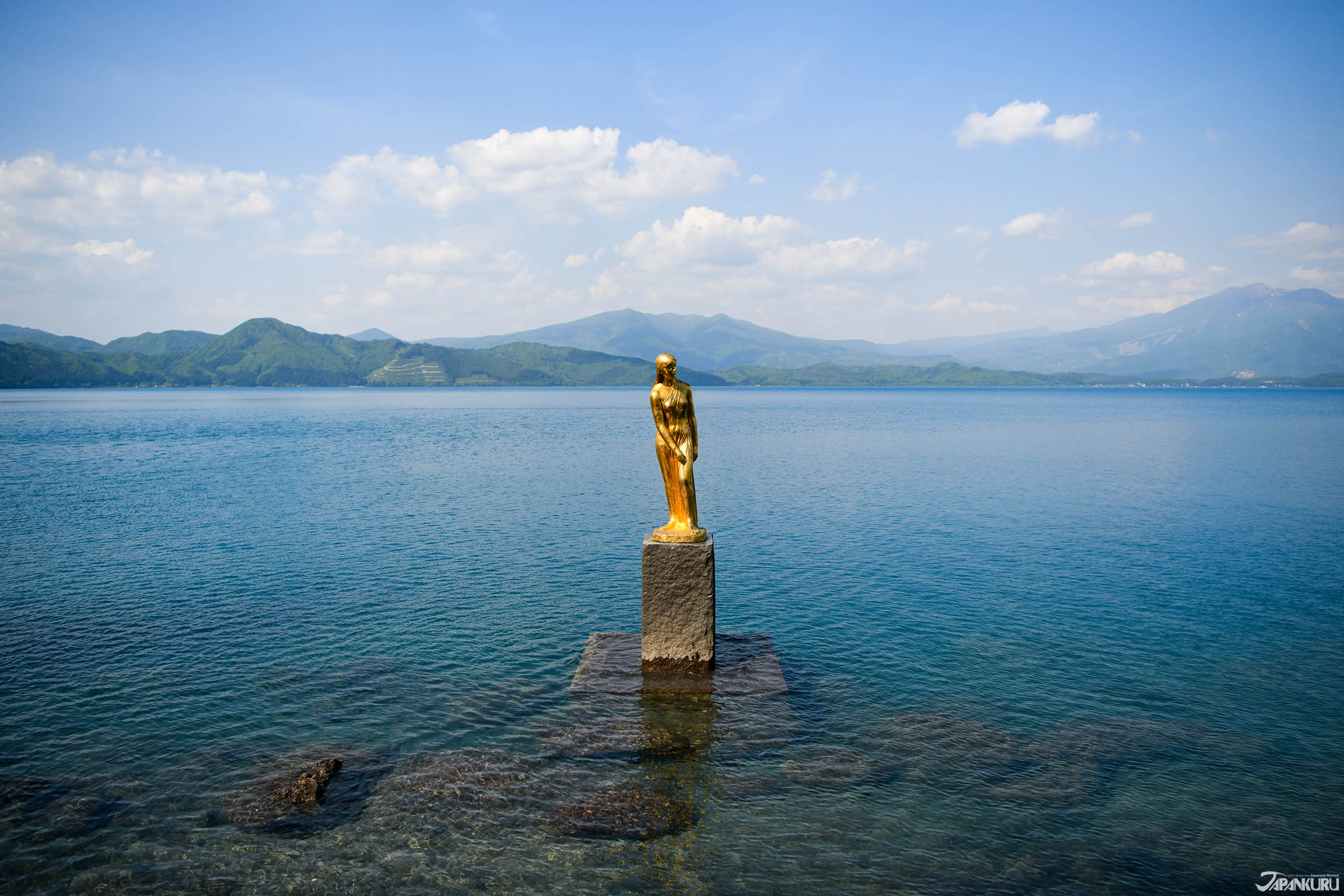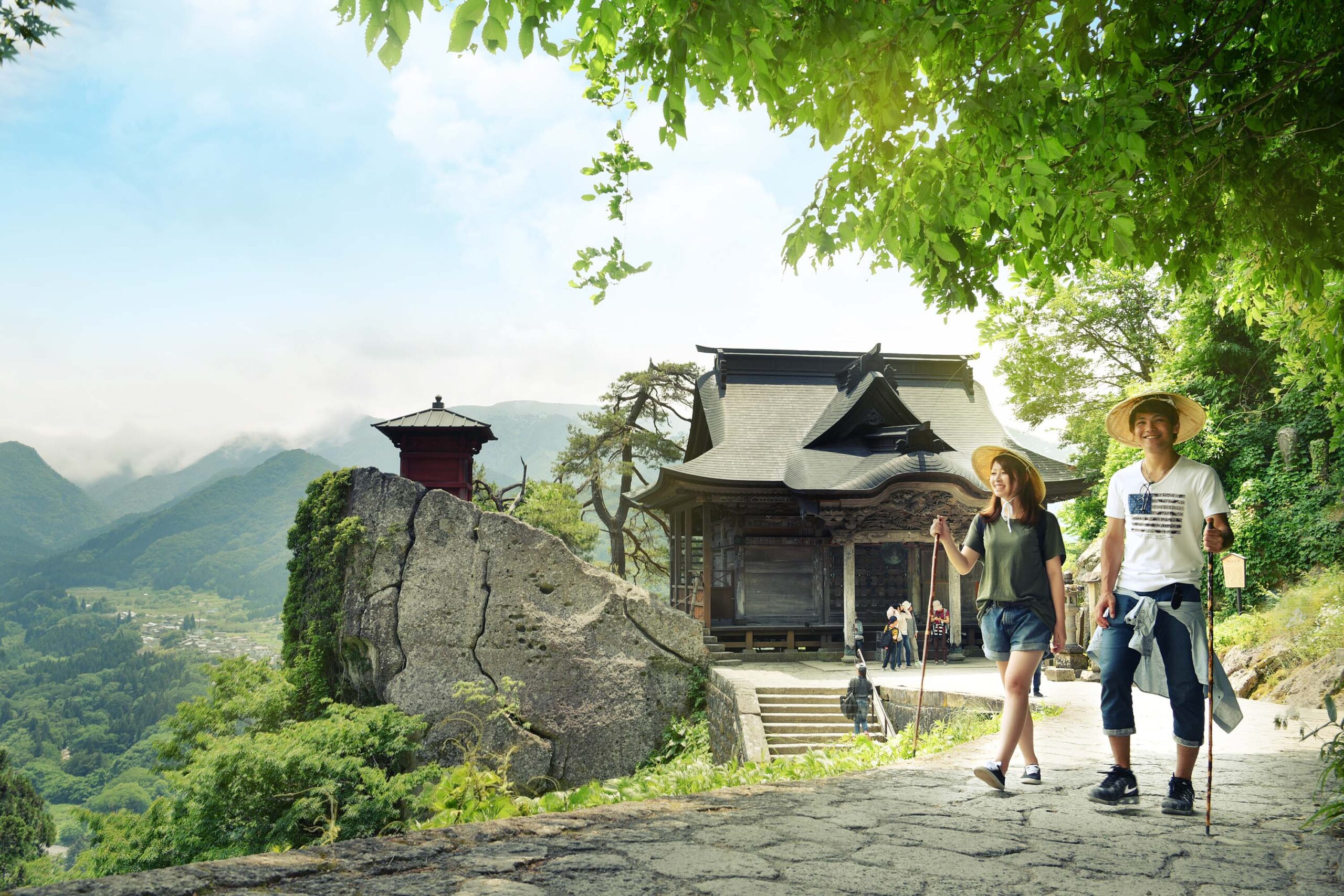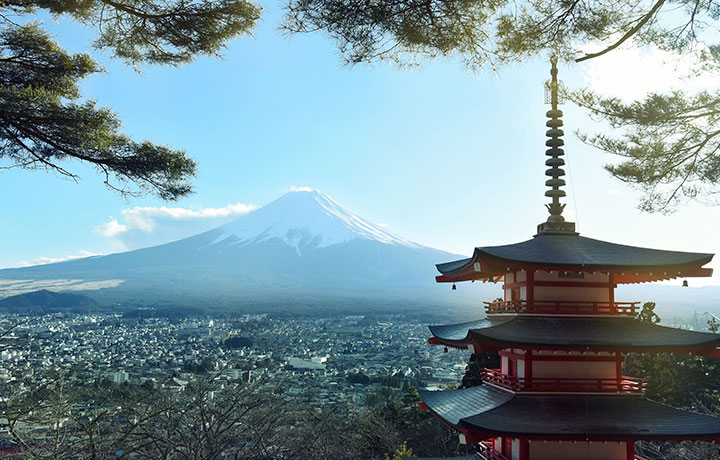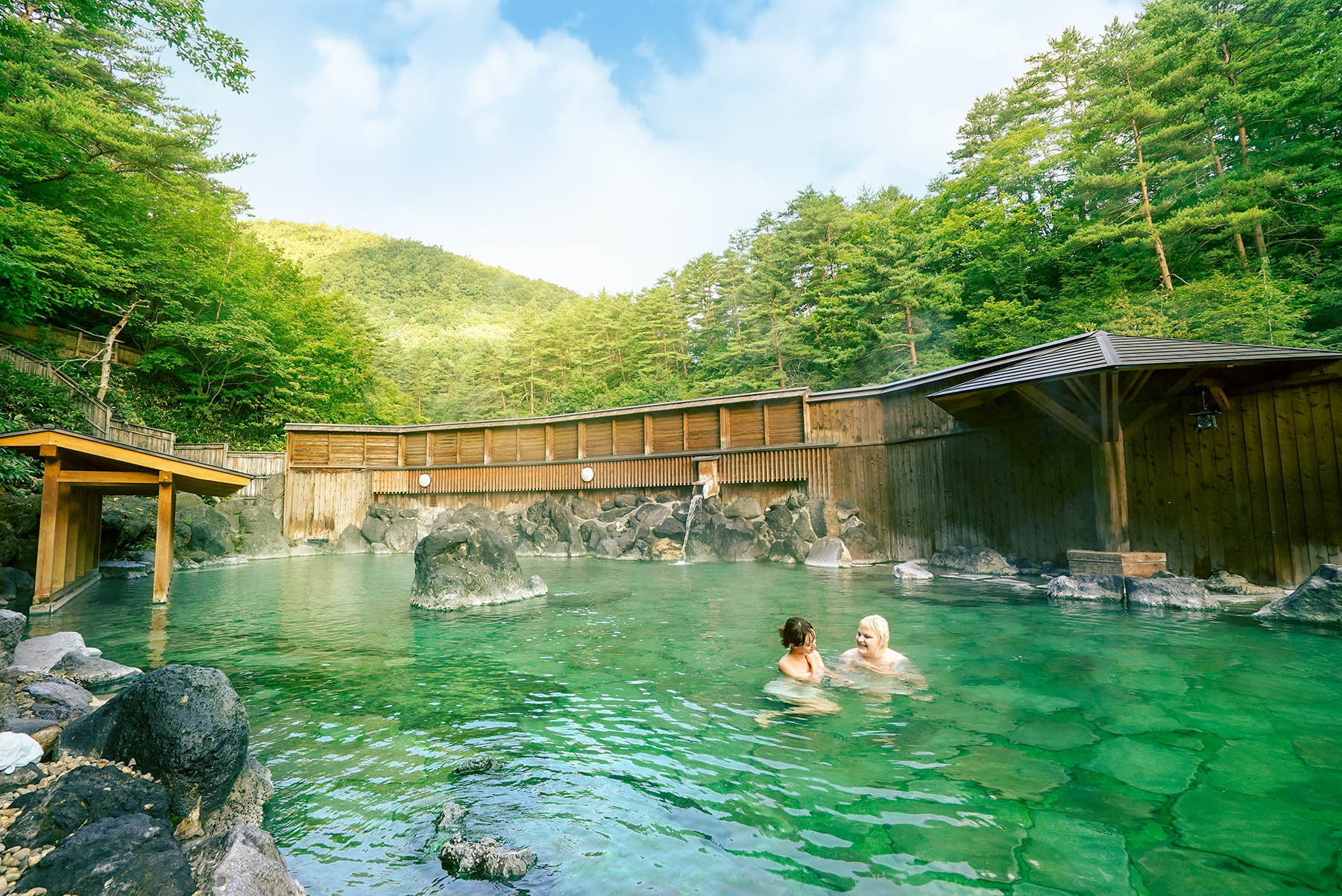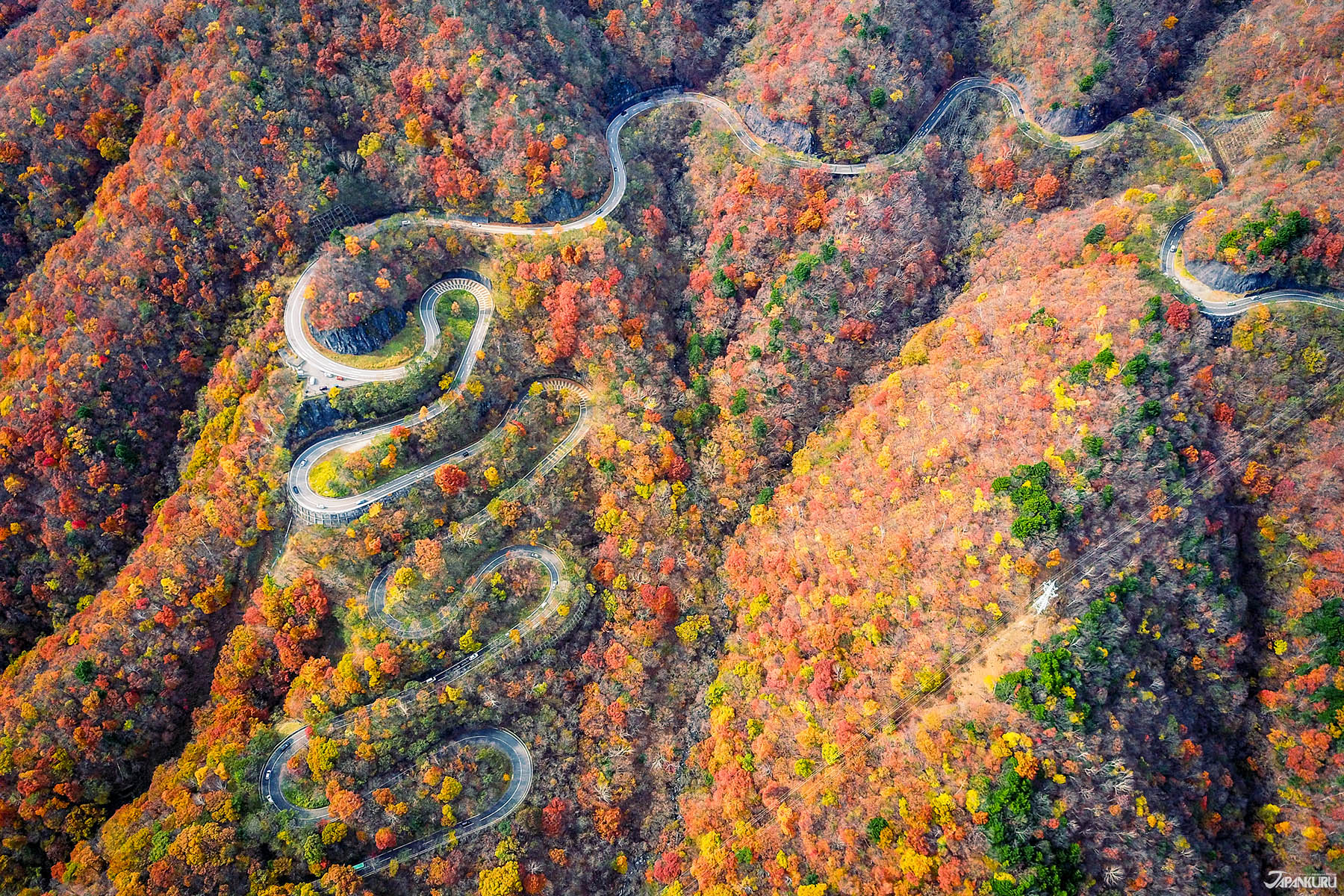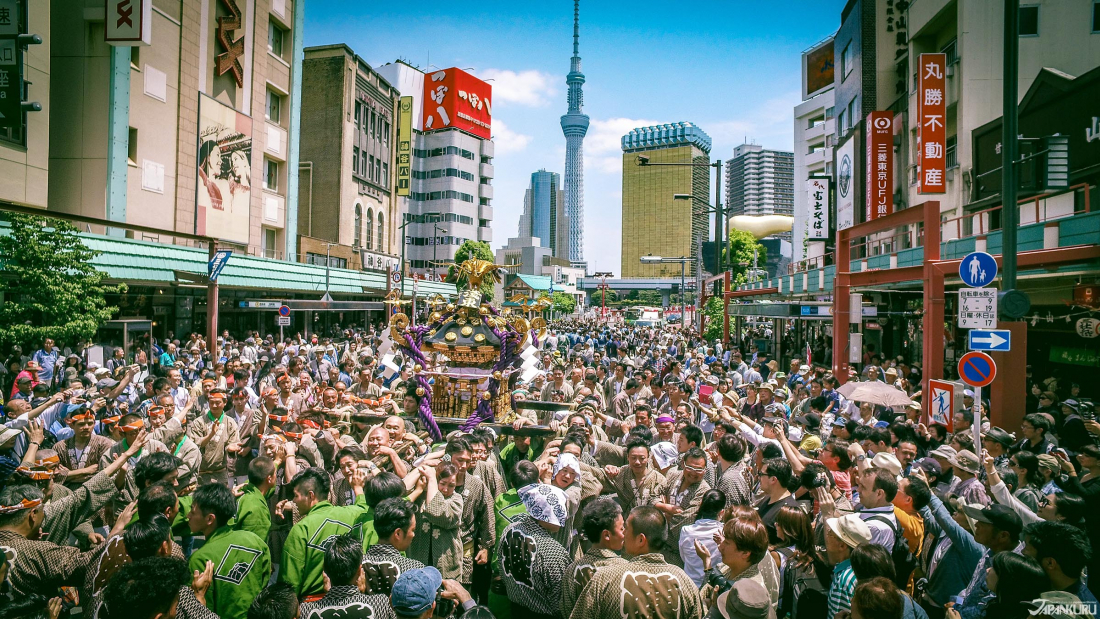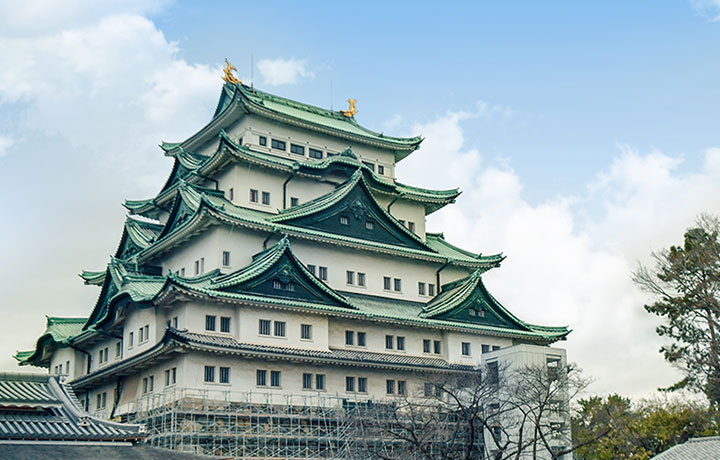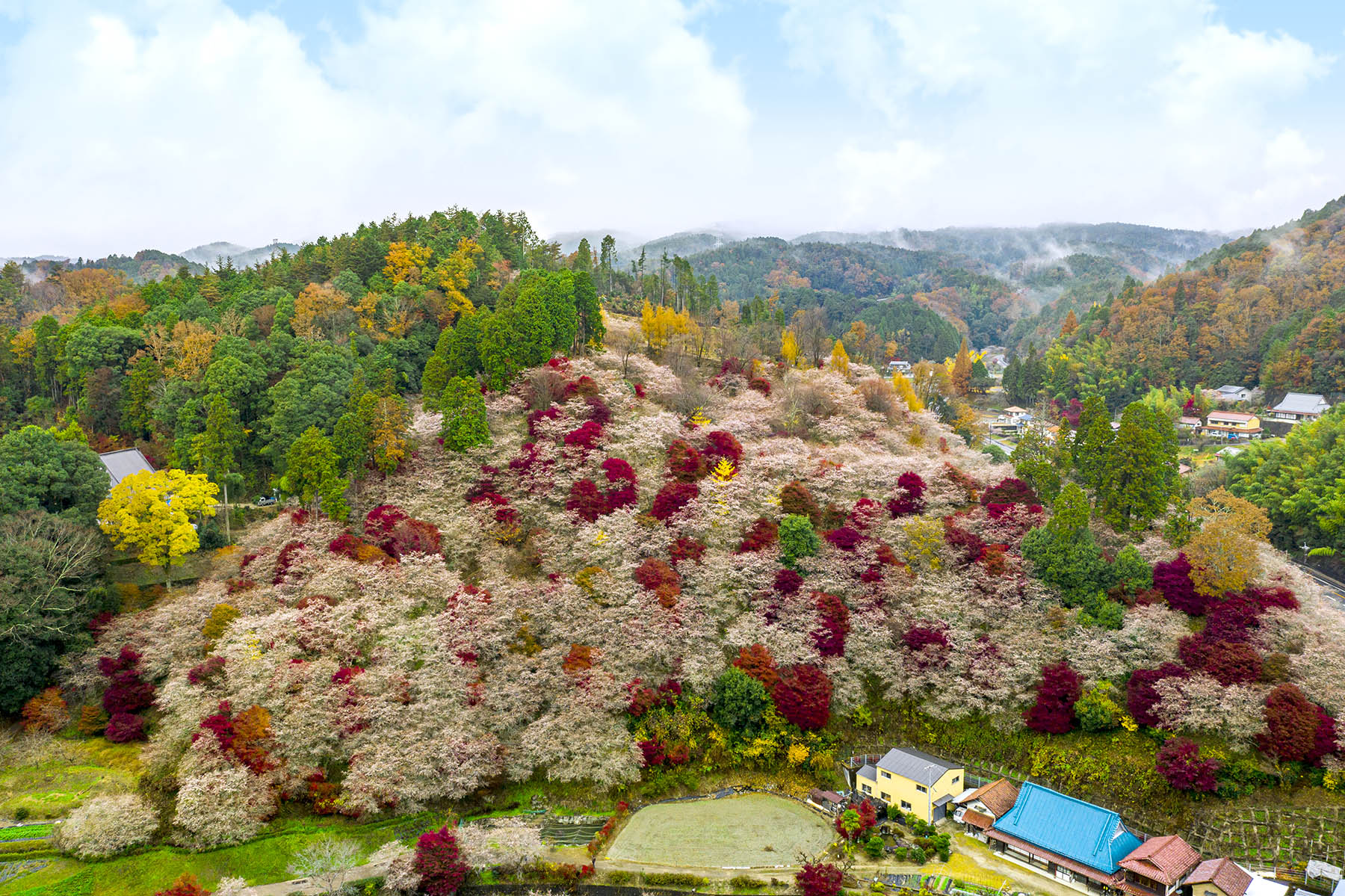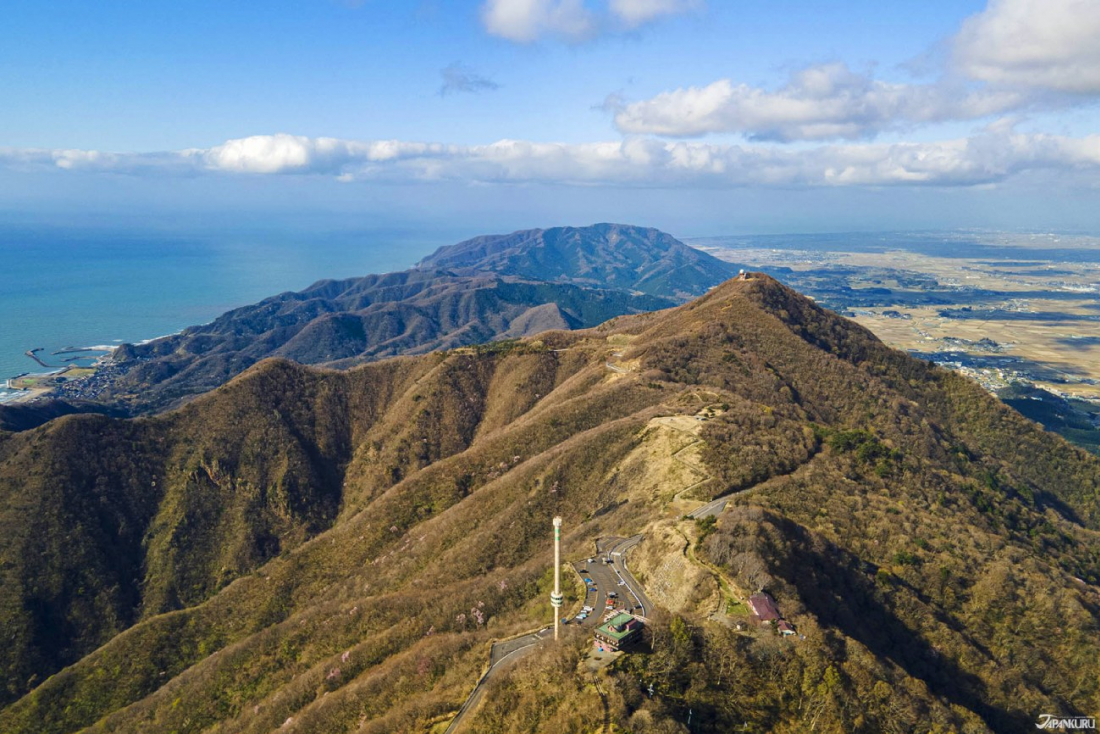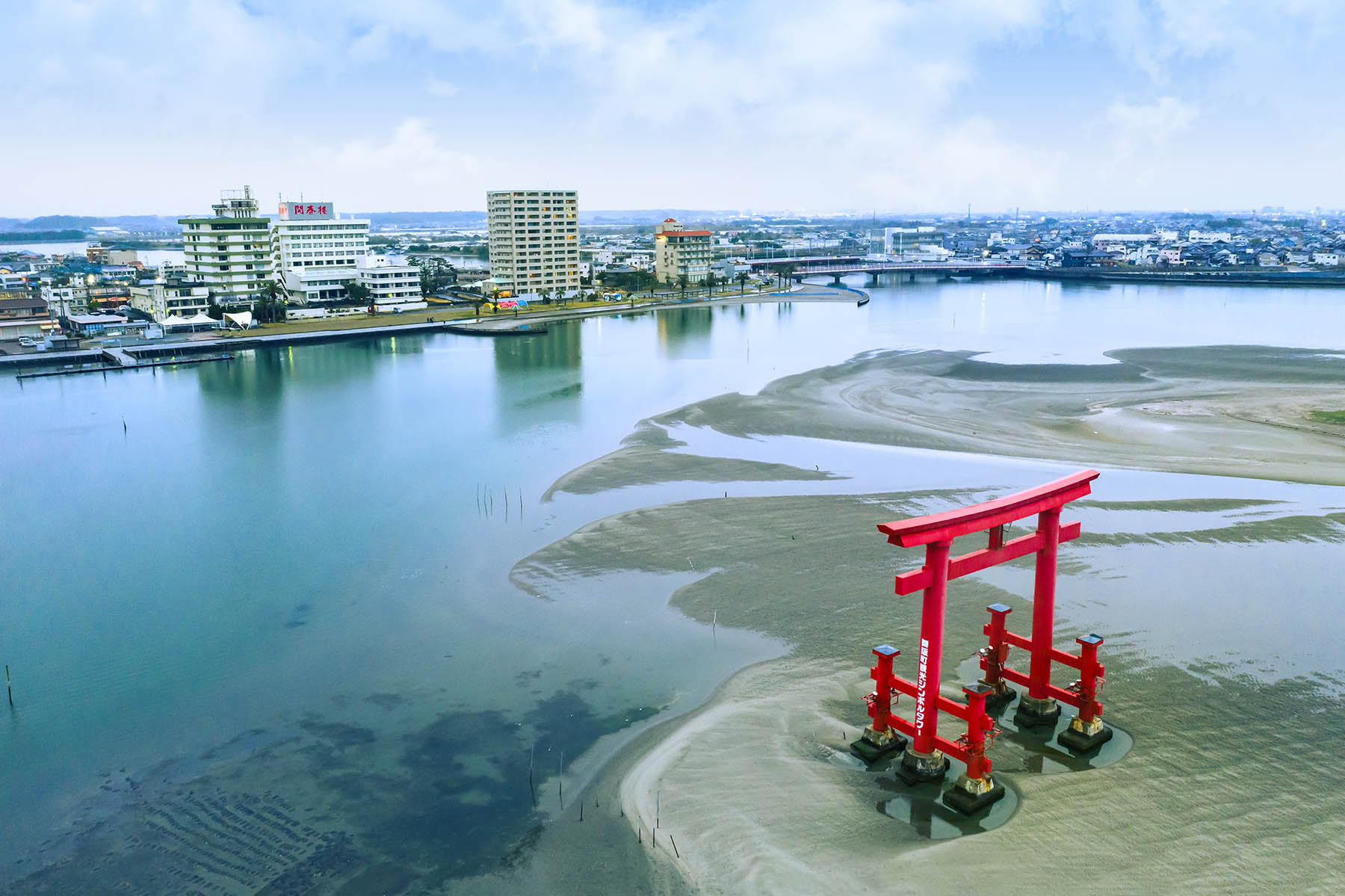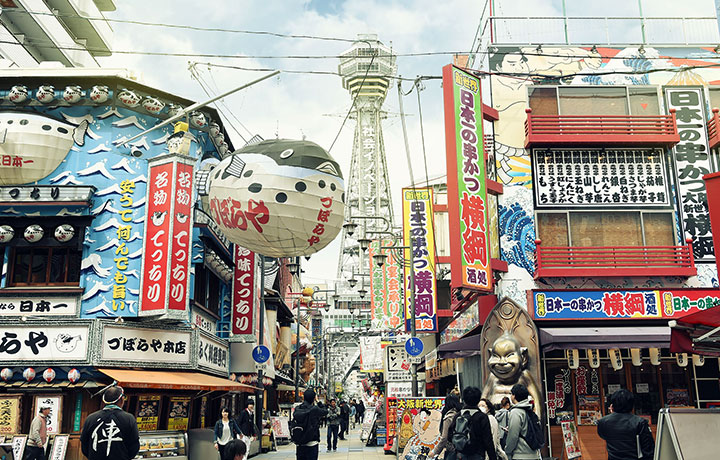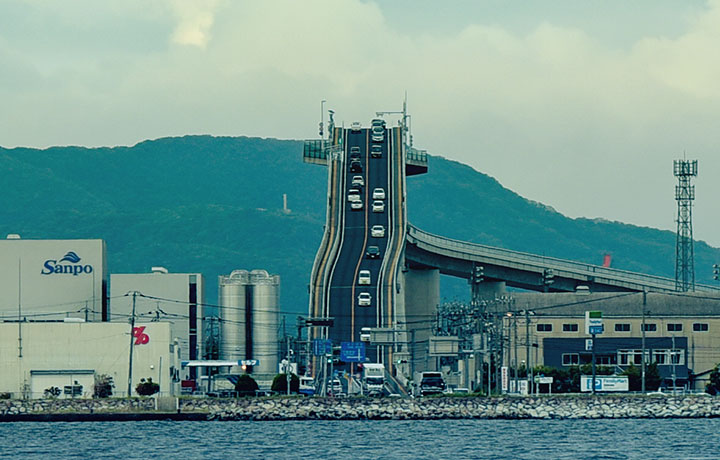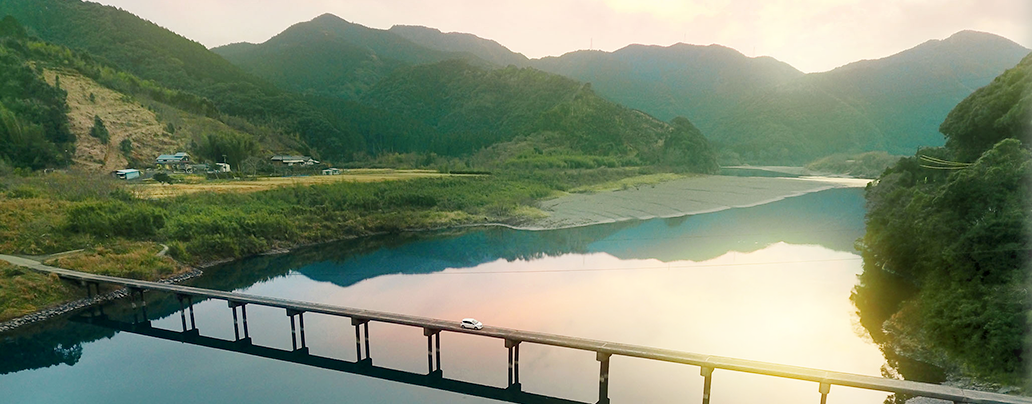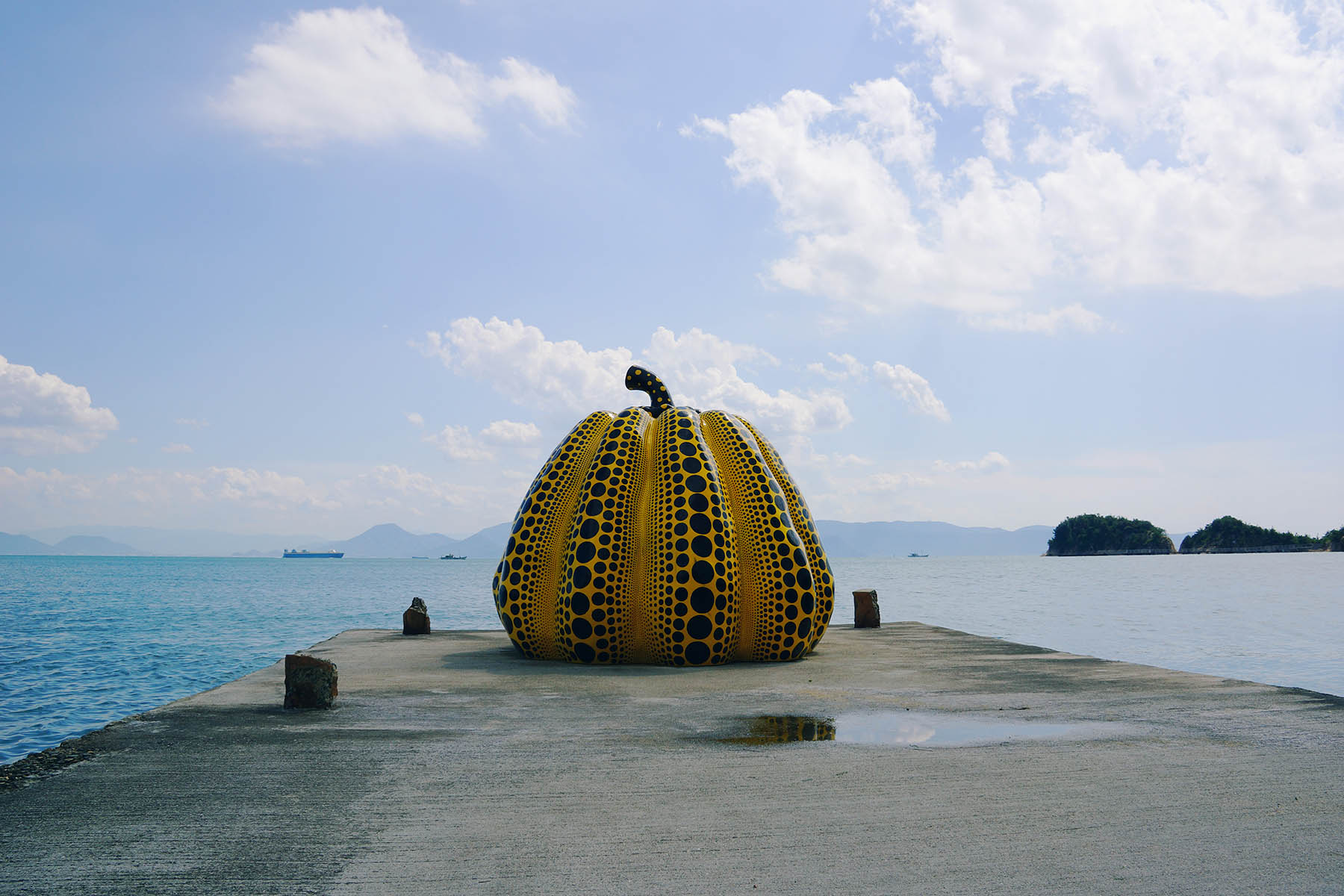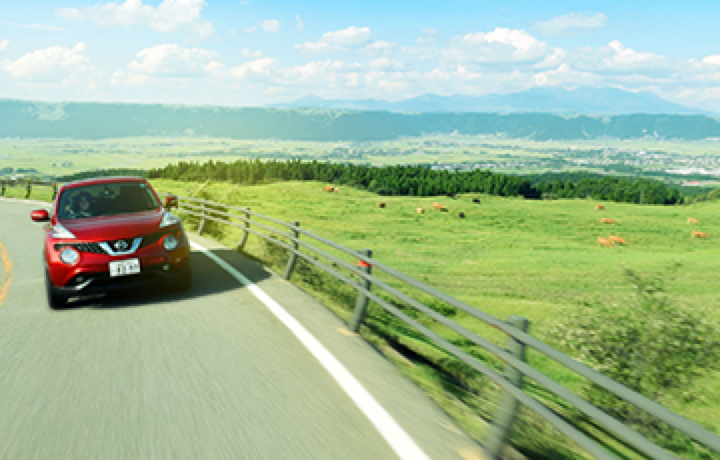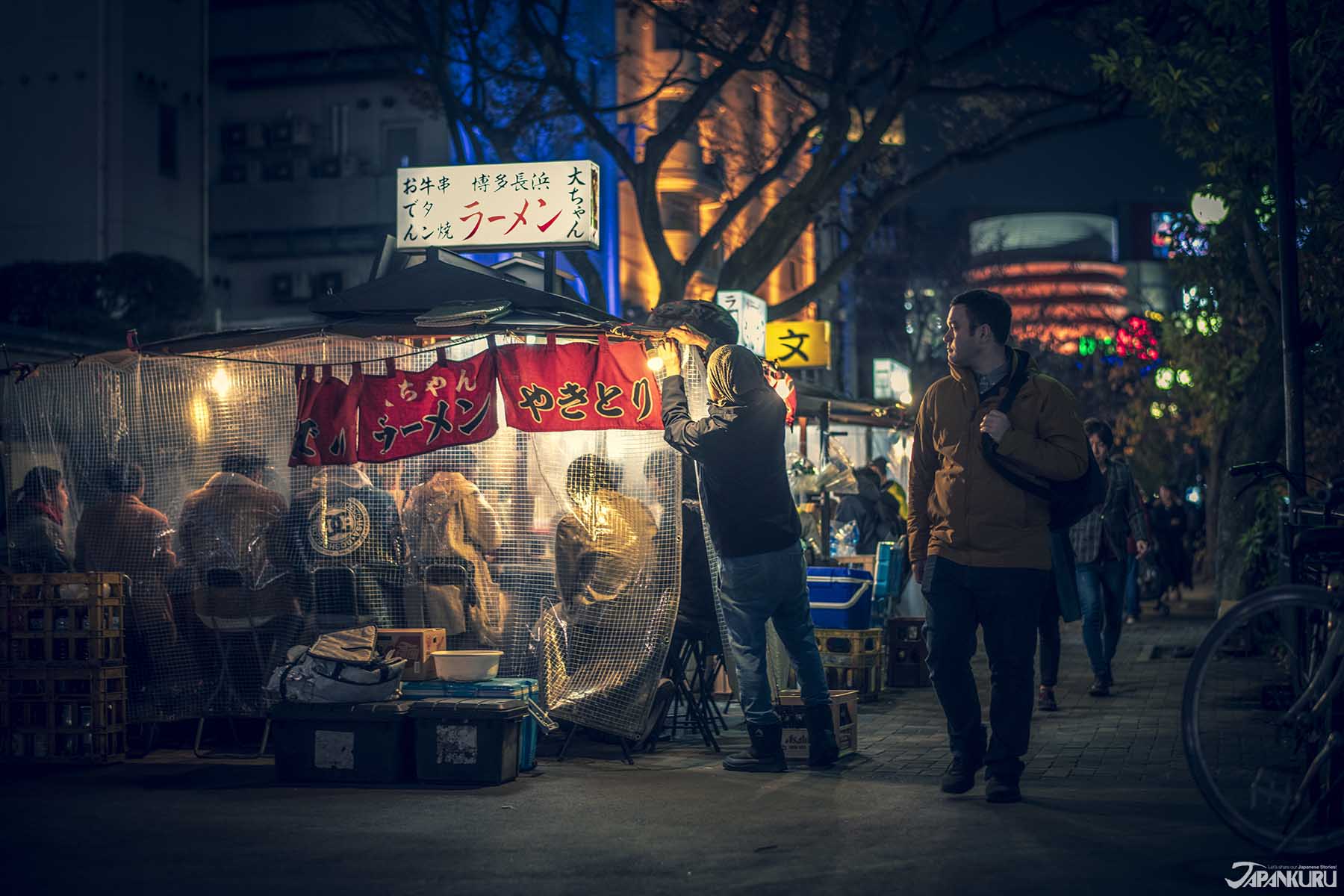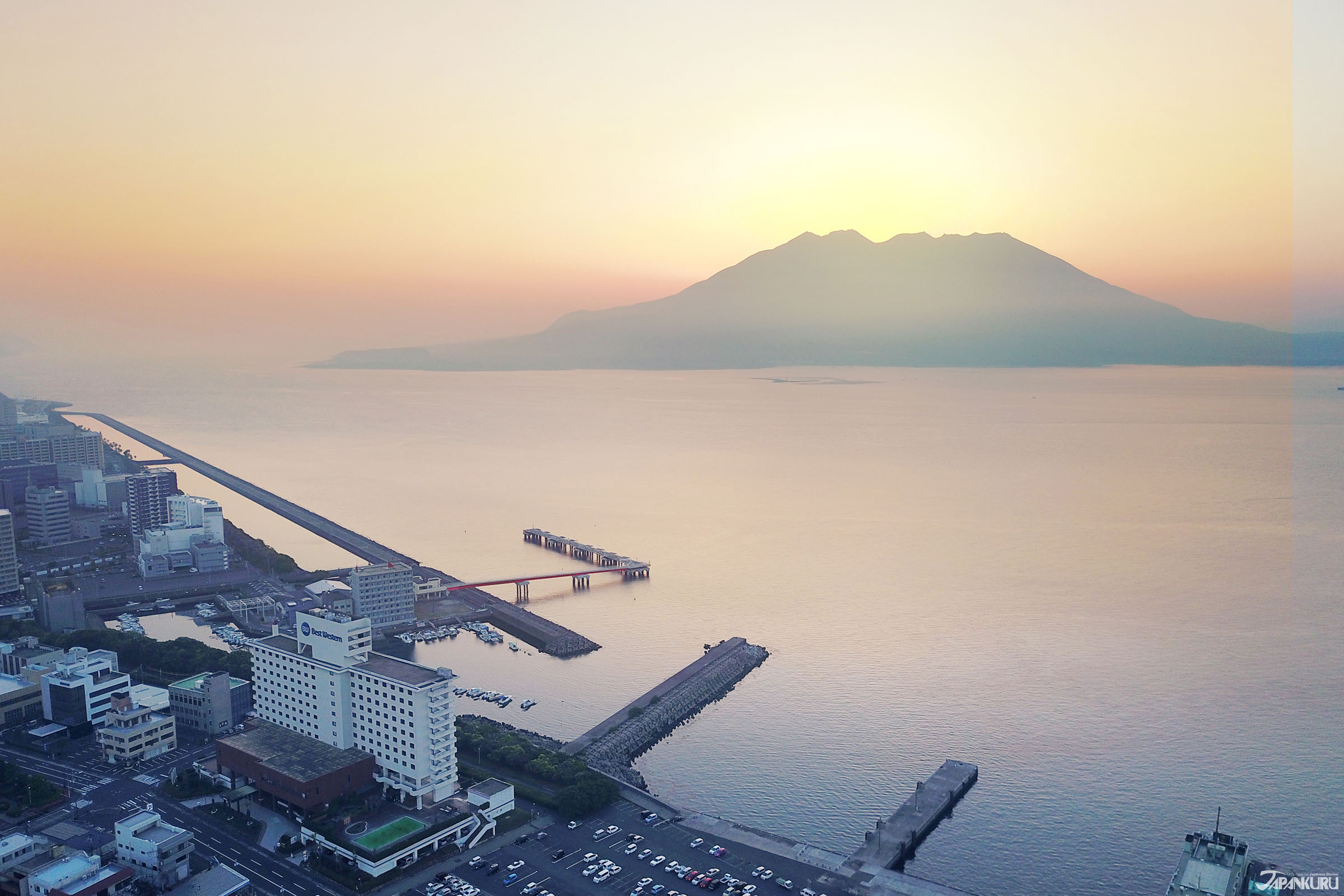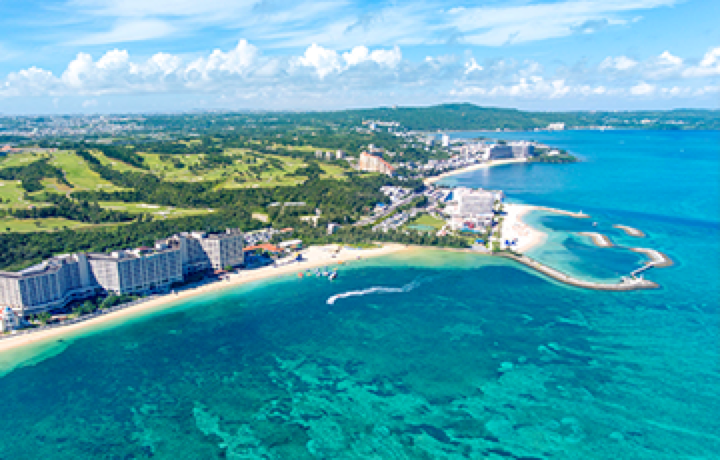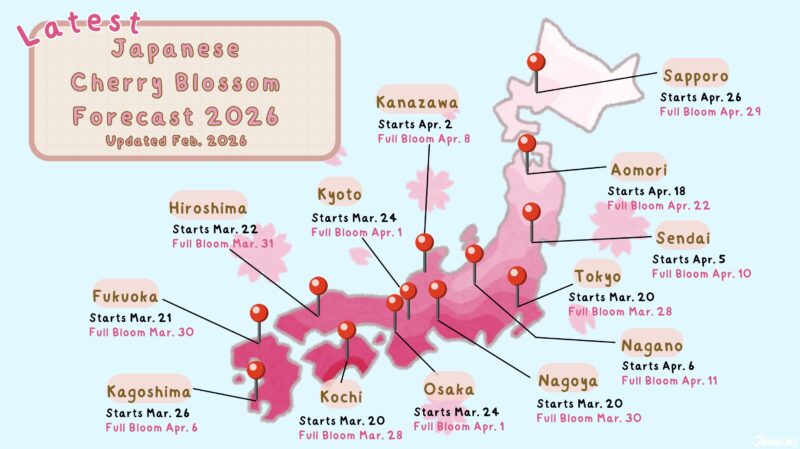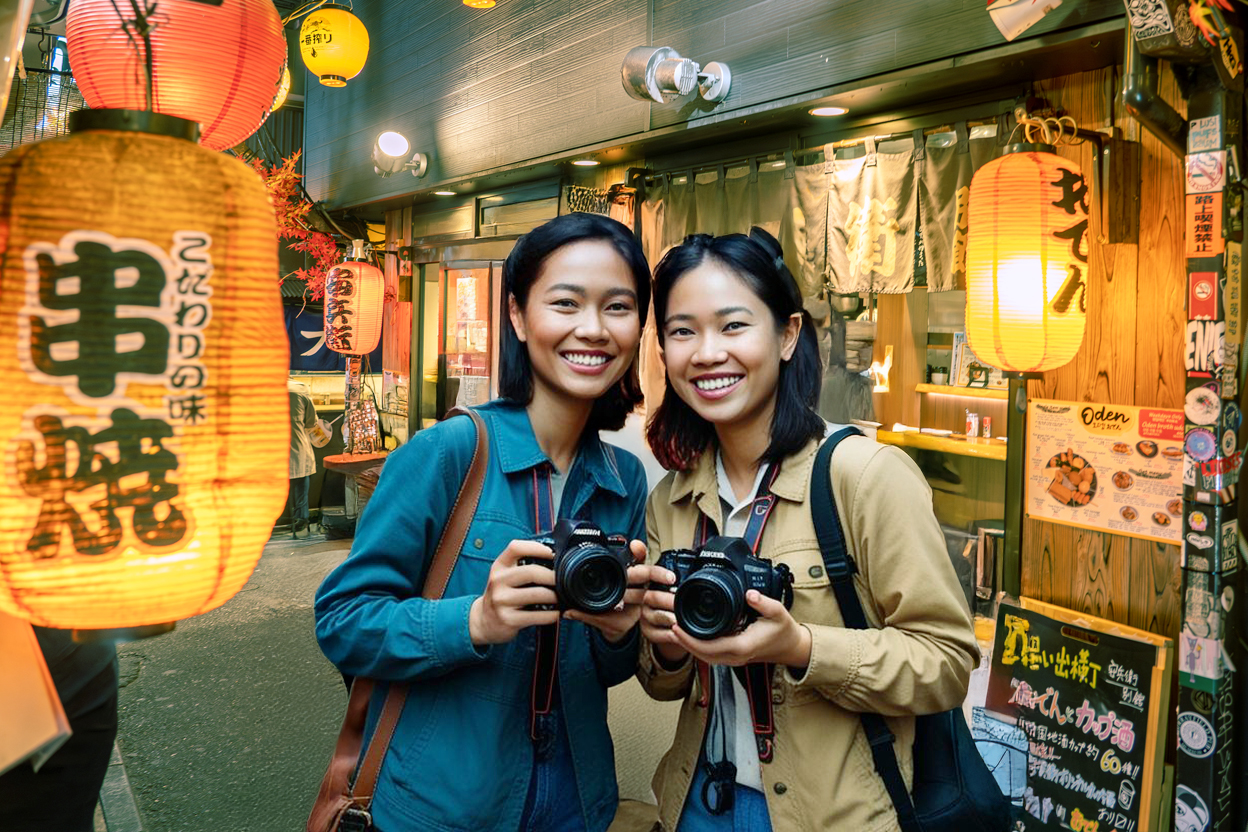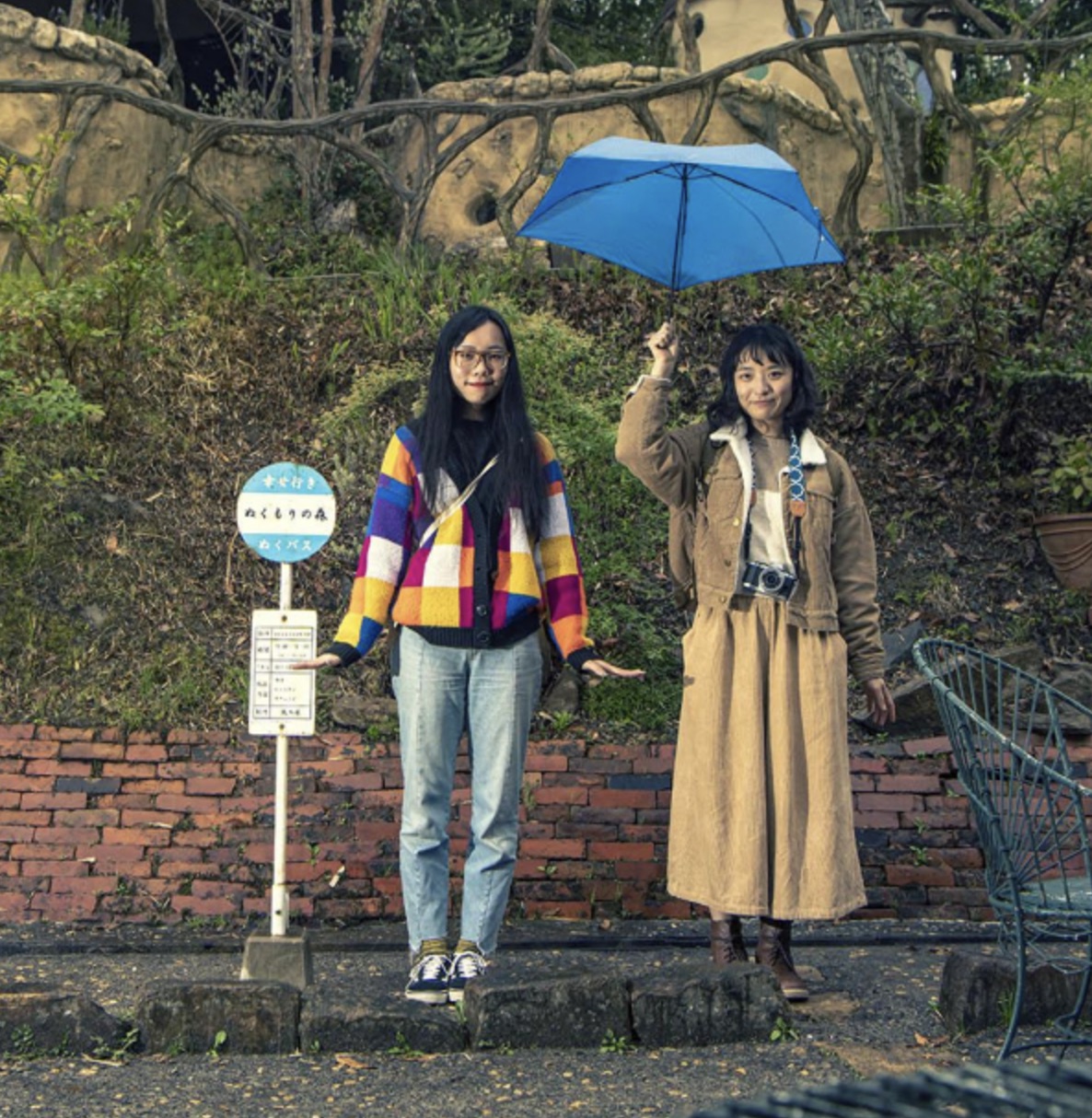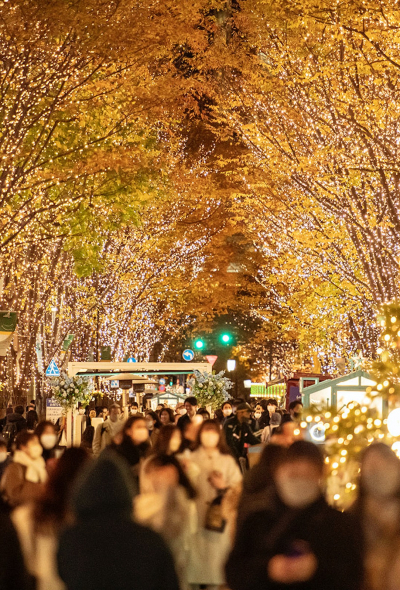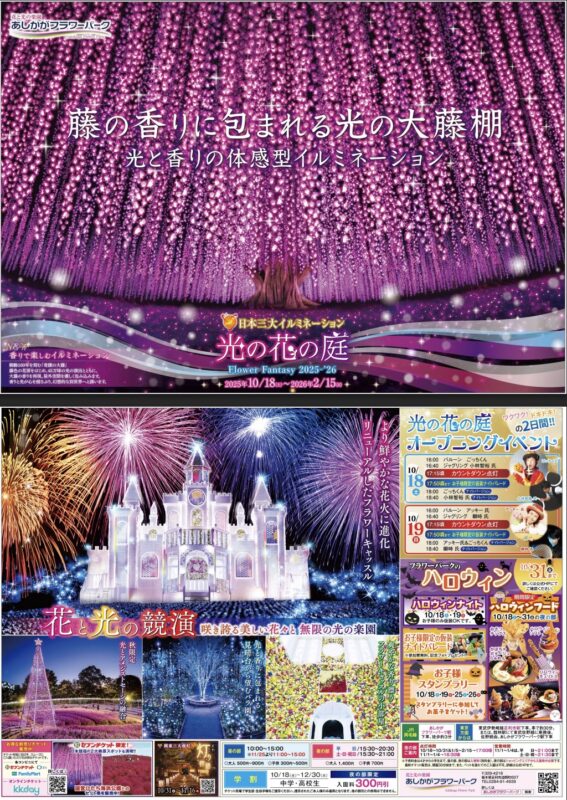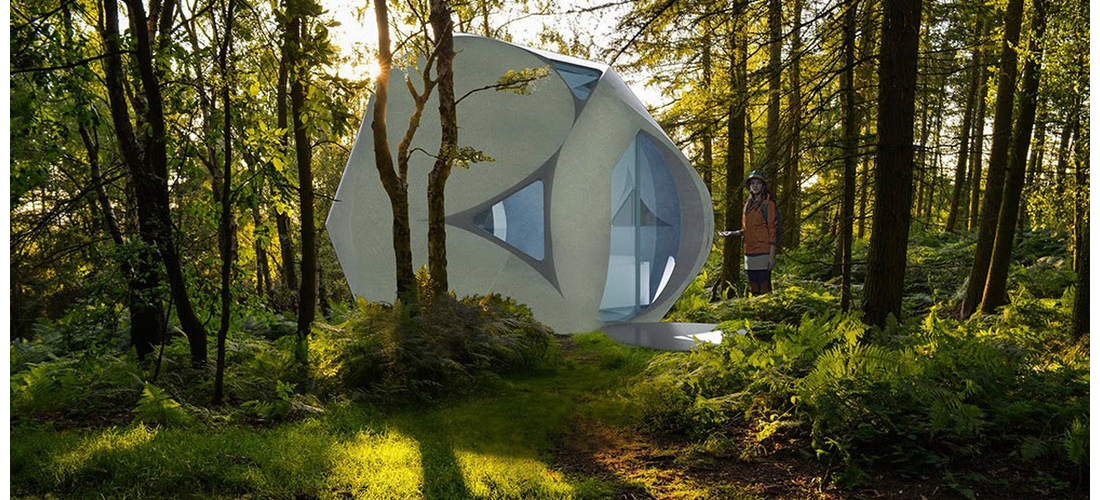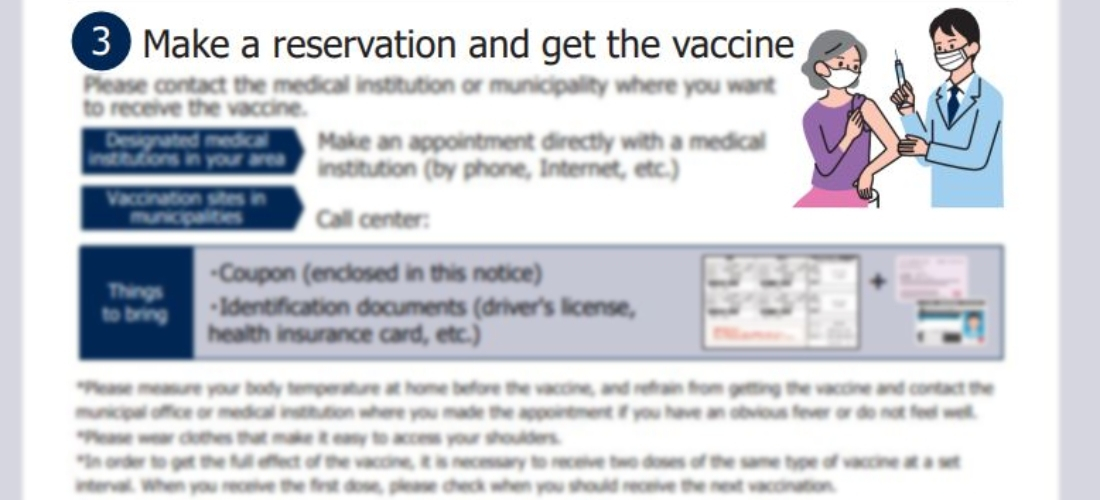Japan is known for frequent earthquakes and typhoons, and even the occasional tsunami. When early May brought 2 earthquakes in 2 days, I knew it was time to finally put together my own emergency kit.
While most of the earthquakes felt in Japan every day are weak tremors that residents barely notice, we never know when a big one will hit, so disaster preparedness is fostered in children from a young age. Schools, offices, department stores, you see fire drills and practice evacuations everywhere, because everyone can see the importance of being prepared.
I myself haven’t been in Japan for all that long, but even in this short time I’ve been able to see how seriously disaster preparedness is taken here. As a student in language school, there were special sessions multiple times a year, which included standard fire drills and special emergency Japanese practice. They made sure we had the phone numbers for the fire department (119) and police (110) memorized, and that we had the vocabulary to at least tell them our own address and phone number. Because if a real emergency occurred, it was important that we could inform the authorities and get help!
I’ve also noticed how most homes keep an emergency kit! Of course, everyone has different needs, and if I packed everything I saw recommended, I would be carrying thousands of items. So I took the advice under consideration and put together an emergency bag of my own, and shared the contents with you here.
① The Bag
You can buy fully packed emergency kits, but if that’s the route you want to go, you can just stop reading here! If you’d prefer to put together your own kit, I recommend you pack your things in an old backpack. If you have one that doesn’t get much use anymore, that would be perfect. Bonus points if your bag is bright and colorful, making it easy to see in case of an emergency.
This is what a pre-packed emergency kit looks like.
② Flashlights
Flashlights big and small, with chargers and batteries – perhaps even a hand crank for extra peace of mind. I particularly like this flashlight with a built-in radio, so you listen to the news even if the power is out or you’re stuck outside. It can also be used as a power bank to charge devices if necessary! There’s even a signal mode if you need to call for help. At around 3,000 yen, I thought it was a pretty good deal.
③ Gloves
Disasters can mean burning buildings and broken glass, so a sturdy pair of gloves is always a good idea. You can get simpler pairs, but these ones are waterproof and heat-resistant.
④ Important Documents
Passports, bank books, certificates and diplomas, plus your Japanese hanko stamp. Even if you don’t store these in your emergency bag at all times, make sure you know exactly where your important documents are so you can grab them and go if you need to evacuate. What you definitely should store in the emergency bag is paper copies of all the original documents!
⑤ A Comfortable Change of Clothes
If you end up running out of the house in pajamas, you’ll be very glad you packed some clothing to change into. Of course, Japanese winters are chilly and the summers are humid and hot, so it’s a good idea to have a couple options that work in different temperatures. Don’t forget to pack up a few changes of underwear and socks, and a towel is always a good idea.
⑥ First Aid
I kept it fairly simple and packed some basic painkillers, anti-allergy meds, and medicine for stomach discomfort. For good measure, though, I added hand sanitizer in case there’s nowhere to wash hands, and some heat packs (good for cramps and great on cold winter days)!
⑦ Space Blankets
Japan gets cold in the winter and Japanese apartments have terrible heating and insulation, so anyone living here already knows you need to wrap up warm to keep from freezing. If you’re stuck somewhere without a heater (or even outside), space blankets are a compact way to retain warmth.
⑧ Multitool with Knife & Hammer
Earthquakes can mess with structures in unexpected ways, and it’s not impossible for doors to be jammed shut by the pressure. I don’t plan on getting trapped in my house, so I picked up this handy multitool that has a hammer alongside the other useful tools, which can break the glass in a window. (I’d definitely be wearing those gloves, though!)
⑨ Emergency Toilet Bags
If the water gets turned off for some reason, the last thing you want is to be worrying about a flushing toilet. These bags are made specifically for that purpose, and can trap both waste and odors when the toilet isn’t working.
⑩ Portable Water Tank
When the water stops flowing, many people in Japan prepare by storing water in a clean bathtub. Some apartments and houses lack a tub, however, any in the case of an evacuation that’s no longer a practical solution. So a fillable tank comes in handy. This one holds 10 liters, enough to keep you going for a few days if necessary.
Of course, there are plenty of more personal things to pack, which are likely to vary from person to person. Skincare items, pens and notebooks, some people might even be interested in this drinking water that they say can safely be stored for years.
Whistles seem like they could only come in handy in pretty dire situations, but if it comes to that you might just be happy to have them.
Along with the emergency water, some people pack special emergency food packets as well. This stuff is specially made to last for years, like the water, but I choose to just put a little bit of normal packaged, shelf-stable food in my bag instead, since I check it every year anyway.
If you come from somewhere that’s pretty safe from natural disasters, or at least earthquakes (like I do!) then this kind of emergency bag might seem like overkill. This article isn’t meant to scare you, but it can’t hurt to be prepared! Safety first!
If disaster strikes while you’re in Japan, you can find more information and advice in English here:
・Japan Meteorological Agency
(The JMA is the clearest source of accurate tracking when it comes to natural disasters. They have pages listing the most recent earthquakes, and typhoon tracking maps.)
・Japan National Tourism Organization Safety Tips
・NHK World News (Japanese Public Broadcasting)
・The U.S. Embassy in Japan / British Embassy / Australian Embassy / Canadian Embassy / (Or your embassy!)
Original Author: Pin
English Edition: Sophia Appelbaum
Details
NAME:Emergency Preparedness
I've lived in Tokyo for a few years now, and I love wandering Japan looking for good food, lovely new places, and the best tourist attractions throughout the country.
COMMENT
FEATURED MEDIA
VIEW MORE 
A New Tokyo Animal Destination: Relax & Learn About the World’s Animals in Japan
#pr #japankuru #anitouch #anitouchtokyodome #capybara #capybaracafe #animalcafe #tokyotrip #japantrip #카피바라 #애니터치 #아이와가볼만한곳 #도쿄여행 #가족여행 #東京旅遊 #東京親子景點 #日本動物互動體驗 #水豚泡澡 #東京巨蛋城 #เที่ยวญี่ปุ่น2025 #ที่เที่ยวครอบครัว #สวนสัตว์ในร่ม #TokyoDomeCity #anitouchtokyodome

Shohei Ohtani Collab Developed Products & Other Japanese Drugstore Recommendations From Kowa
#pr #japankuru
#kowa #syncronkowa #japanshopping #preworkout #postworkout #tokyoshopping #japantrip #일본쇼핑 #일본이온음료 #오타니 #오타니쇼헤이 #코와 #興和 #日本必買 #日本旅遊 #運動補充能量 #運動飲品 #ช้อปปิ้งญี่ปุ่น #เครื่องดื่มออกกำลังกาย #นักกีฬา #ผลิตภัณฑ์ญี่ปุ่น #อาหารเสริมญี่ปุ่น

도쿄 근교 당일치기 여행 추천! 작은 에도라 불리는 ‘가와고에’
세이부 ‘가와고에 패스(디지털)’ 하나면 편리하게 이동 + 가성비까지 완벽하게! 필름카메라 감성 가득한 레트로 거리 길거리 먹방부터 귀여움 끝판왕 핫플&포토 스폿까지 총집합!
Looking for day trips from Tokyo? Try Kawagoe, AKA Little Edo!
Use the SEIBU KAWAGOE PASS (Digital) for easy, affordable transportation!
Check out the historic streets of Kawagoe for some great street food and plenty of picturesque retro photo ops.
#pr #japankuru #도쿄근교여행 #가와고에 #가와고에패스 #세이부패스 #기모노체험 #가와고에여행 #도쿄여행코스 #도쿄근교당일치기 #세이부가와고에패스
#tokyotrip #kawagoe #tokyodaytrip #seibukawagoepass #kimono #japantrip

Hirakata Park, Osaka: Enjoy the Classic Japanese Theme Park Experience!
#pr #japankuru #hirakatapark #amusementpark #japantrip #osakatrip #familytrip #rollercoaster #retrôvibes #枚方公園 #大阪旅遊 #關西私房景點 #日本親子旅行 #日本遊樂園 #木造雲霄飛車 #히라카타파크 #สวนสนุกฮิราคาตะพาร์ค

🍵Love Matcha? Upgrade Your Matcha Experience With Tsujiri!
・160년 전통 일본 말차 브랜드 츠지리에서 말차 덕후들이 픽한 인기템만 골라봤어요
・抹茶控的天堂!甜點、餅乾、飲品一次滿足,連伴手禮都幫你列好清單了
・ส่องมัทฉะสุดฮิต พร้อมพาเที่ยวร้านดังในอุจิ เกียวโต
#pr #japankuru #matcha #matchalover #uji #kyoto #japantrip #ujimatcha #matchalatte #matchasweets #tsujiri #말차 #말차덕후 #츠지리 #교토여행 #말차라떼 #辻利抹茶 #抹茶控 #日本抹茶 #宇治 #宇治抹茶 #日本伴手禮 #抹茶拿鐵 #抹茶甜點 #มัทฉะ #ของฝากญี่ปุ่น #ชาเขียวญี่ปุ่น #ซึจิริ #เกียวโต

・What Is Nenaito? And How Does This Sleep Care Supplement Work?
・你的睡眠保健品——認識「睡眠茶氨酸錠」
・수면 케어 서플리먼트 ‘네나이토’란?
・ผลิตภัณฑ์เสริมอาหารดูแลการนอน “Nenaito(ネナイト)” คืออะไร?
#pr #japankuru #sleepcare #japanshopping #nenaito #sleepsupplement #asahi #睡眠茶氨酸錠 #睡眠保健 #朝日 #l茶胺酸 #日本藥妝 #日本必買 #일본쇼핑 #수면 #건강하자 #네나이토 #일본영양제 #อาหารเสริมญี่ปุ่น #ช้อปปิ้งญี่ปุ่น #ร้านขายยาญี่ปุ่น #ดูแลตัวเองก่อนนอน #อาซาฮิ

Japanese Drugstore Must-Buys! Essential Items from Hisamitsu® Pharmaceutical
#PR #japankuru #hisamitsu #salonpas #feitas #hisamitsupharmaceutical #japanshopping #tokyoshopping #traveltips #japanhaul #japantrip #japantravel

Whether you grew up with Dragon Ball or you just fell in love with Dragon Ball DAIMA, you'll like the newest JINS collab. Shop this limited-edition Dragon Ball accessory collection to find some of the best Dragon Ball merchandise in Japan!
>> Find out more at Japankuru.com! (link in bio)
#japankuru #dragonball #dragonballdaima #animecollab #japanshopping #jins #japaneseglasses #japantravel #animemerch #pr

This month, Japankuru teamed up with @official_korekoko to invite three influencers (originally from Thailand, China, and Taiwan) on a trip to Yokohama. Check out the article (in Chinese) on Japankuru.com for all of their travel tips and photography hints - and look forward to more cool collaborations coming soon!
【橫濱夜散策 x 教你怎麼拍出網美照 📸✨】
每次來日本玩,是不是都會先找旅日網紅的推薦清單?
這次,我們邀請擁有日本豐富旅遊經驗的🇹🇭泰國、🇨🇳中國、🇹🇼台灣網紅,帶你走進夜晚的橫濱!從玩樂路線到拍照技巧,教你怎麼拍出最美的夜景照。那些熟悉的景點,換個視角說不定會有新發現~快跟他們一起出發吧!
#japankuru #橫濱紅磚倉庫 #汽車道 #中華街 #yokohama #japankuru #橫濱紅磚倉庫 #汽車道 #中華街 #yokohama #yokohamaredbrickwarehouse #yokohamachinatown

If you’re a fan of Vivienne Westwood's Japanese designs, and you’re looking forward to shopping in Harajuku this summer, we’ve got important news for you. Vivienne Westwood RED LABEL Laforet Harajuku is now closed for renovations - but the grand reopening is scheduled for July!
>> Find out more at Japankuru.com! (link in bio)
#japankuru #viviennewestwood #harajuku #omotesando #viviennewestwoodredlabel #viviennewestwoodjapan #비비안웨스트우드 #오모테산도 #하라주쿠 #日本購物 #薇薇安魏斯伍德 #日本時尚 #原宿 #表參道 #japantrip #japanshopping #pr

Ready to see TeamLab in Kyoto!? At TeamLab Biovortex Kyoto, the collective is taking their acclaimed immersive art and bringing it to Japan's ancient capital. We can't wait to see it for ourselves this autumn!
>> Find out more at Japankuru.com! (link in bio)
#japankuru #teamlab #teamlabbiovortex #kyoto #kyototrip #japantravel #artnews
Photos courtesy of teamLab, Exhibition view of teamLab Biovortex Kyoto, 2025, Kyoto ® teamLab, courtesy Pace Gallery

Japanese Makeup Shopping • A Trip to Kamakura & Enoshima With Canmake’s Cool-Toned Summer Makeup
#pr #canmake #enoshima #enoden #에노시마 #캔메이크 #japanesemakeup #japanesecosmetics

⚔️The Robot Restaurant is gone, but the Samurai Restaurant is here to take its place. Check it out, and don't forget your coupon!
🍣신주쿠의 명소 로봇 레스토랑이 사무라이 레스토랑으로 부활! 절찬 쿠폰 발급중
💃18歲以上才能入場的歌舞秀,和你想的不一樣!拿好優惠券去看看~
#tokyo #shinjuku #samurairestaurant #robotrestaurant #tokyotrip #도쿄여행 #신주쿠 #사무라이레스토랑 #이색체험 #할인이벤트 #歌舞伎町 #東京景點 #武士餐廳 #日本表演 #日本文化體驗 #japankuru #japantrip #japantravel #japanlovers #japan_of_insta

Japanese appliance & electronics shopping with our KOJIMA x BicCamera coupon!
用JAPANKURU的KOJIMA x BicCamera優惠券買這些正好❤️
코지마 x 빅 카메라 쿠폰으로 일본 가전 제품 쇼핑하기
#pr #japankuru #japanshopping #kojima #biccamera #japaneseskincare #yaman #dji #osmopocket3 #skincaredevice #日本購物 #美容儀 #相機 #雅萌 #日本家電 #일본여행 #면세 #여행꿀팁 #일본쇼핑리스트 #쿠폰 #일본쇼핑 #일본브랜드 #할인 #코지마 #빅카메라 #japankurucoupon

